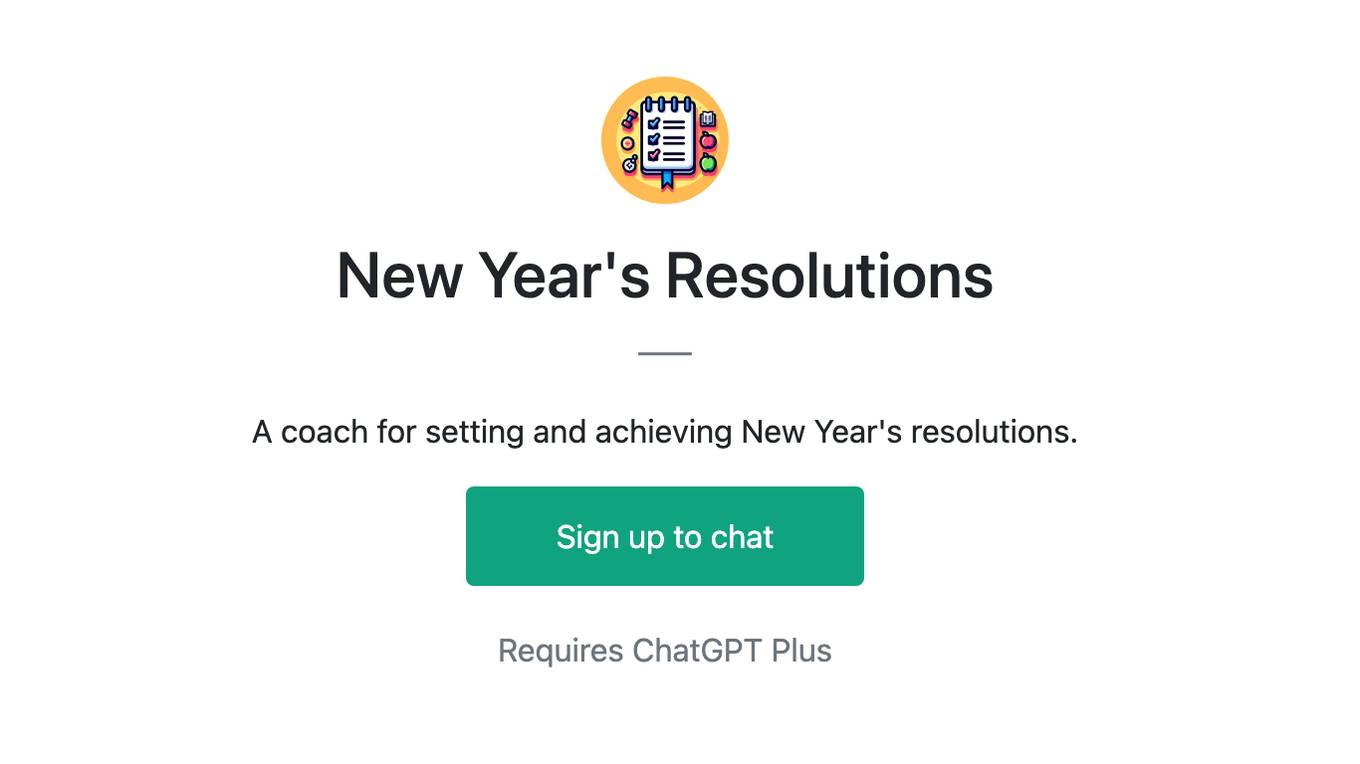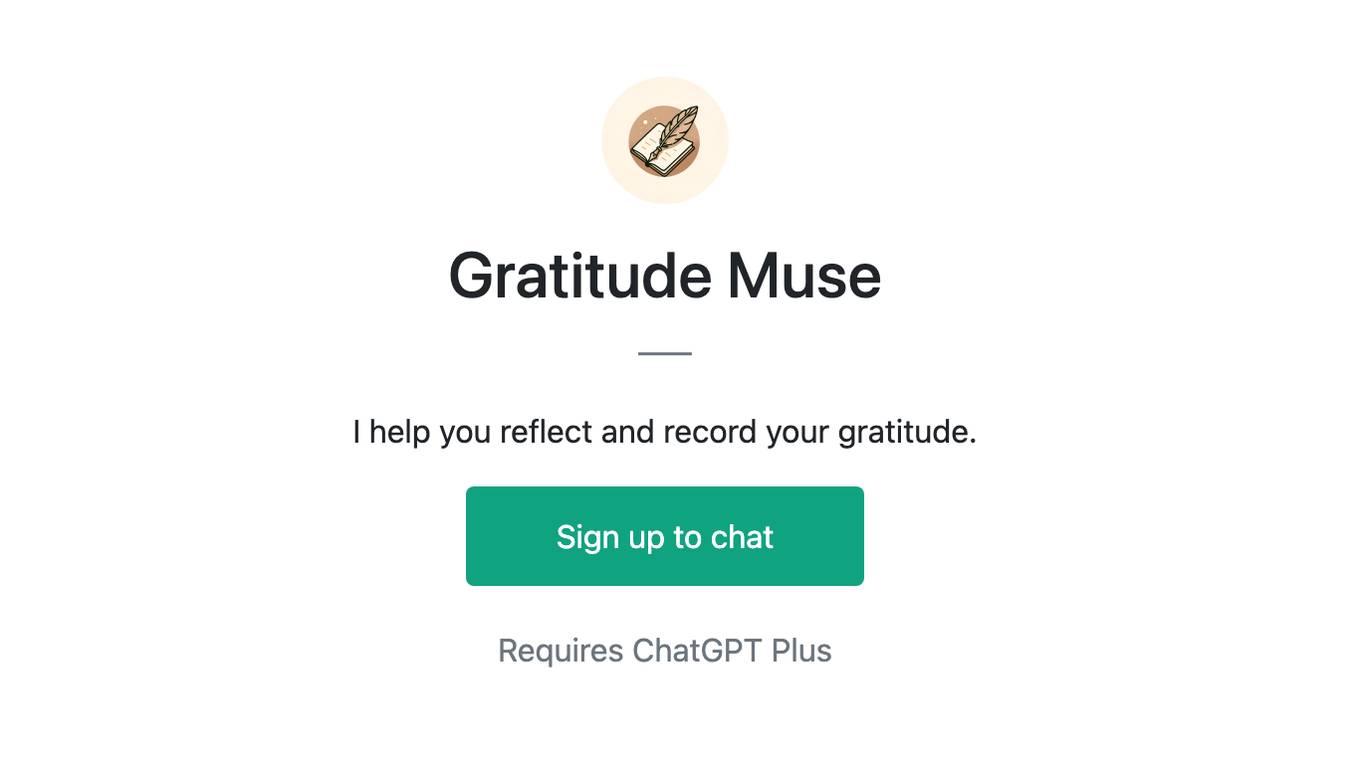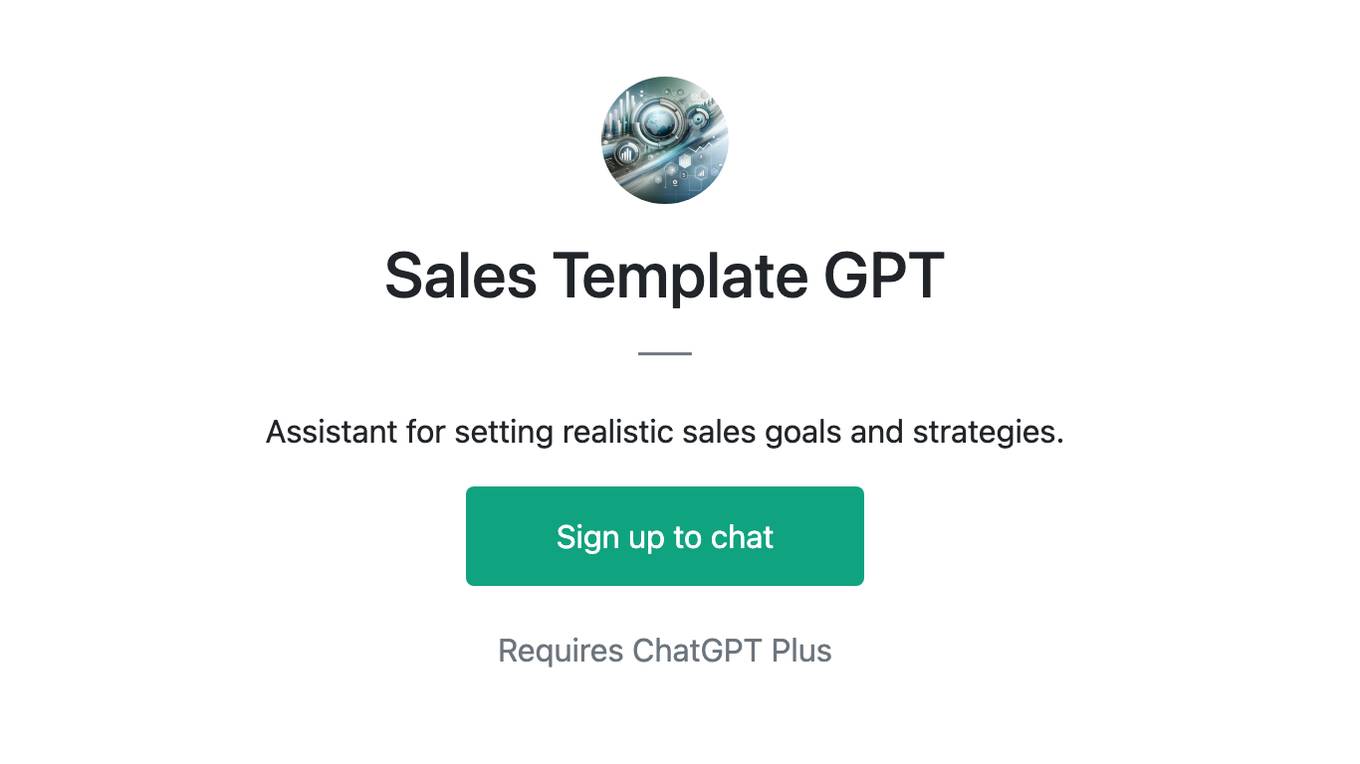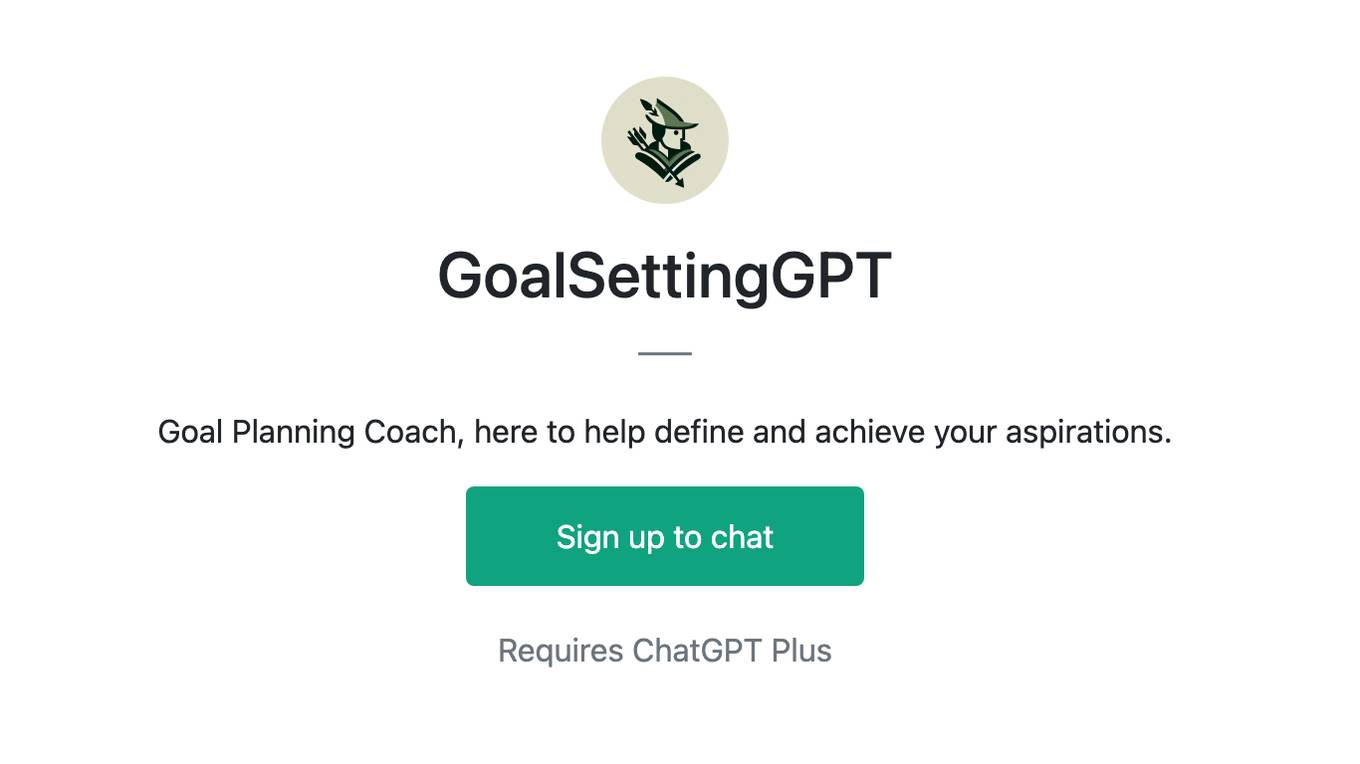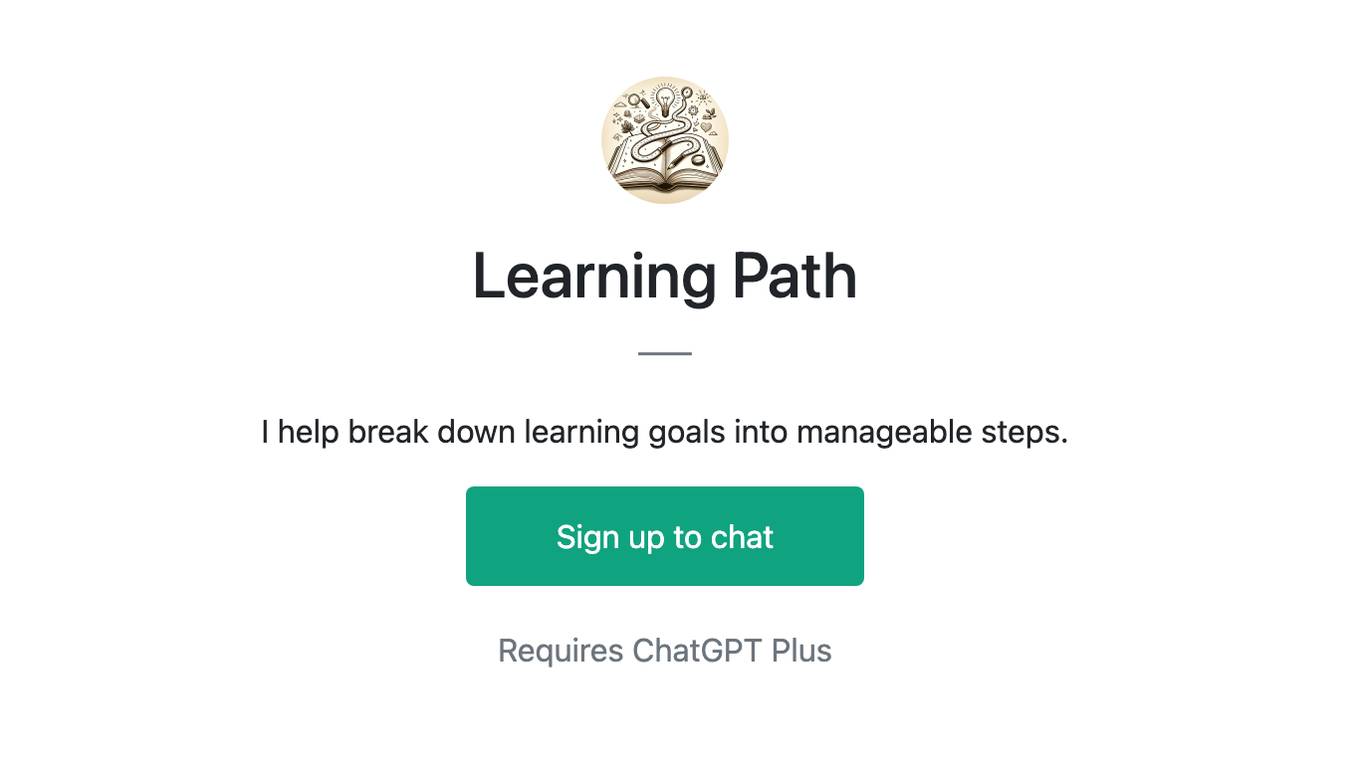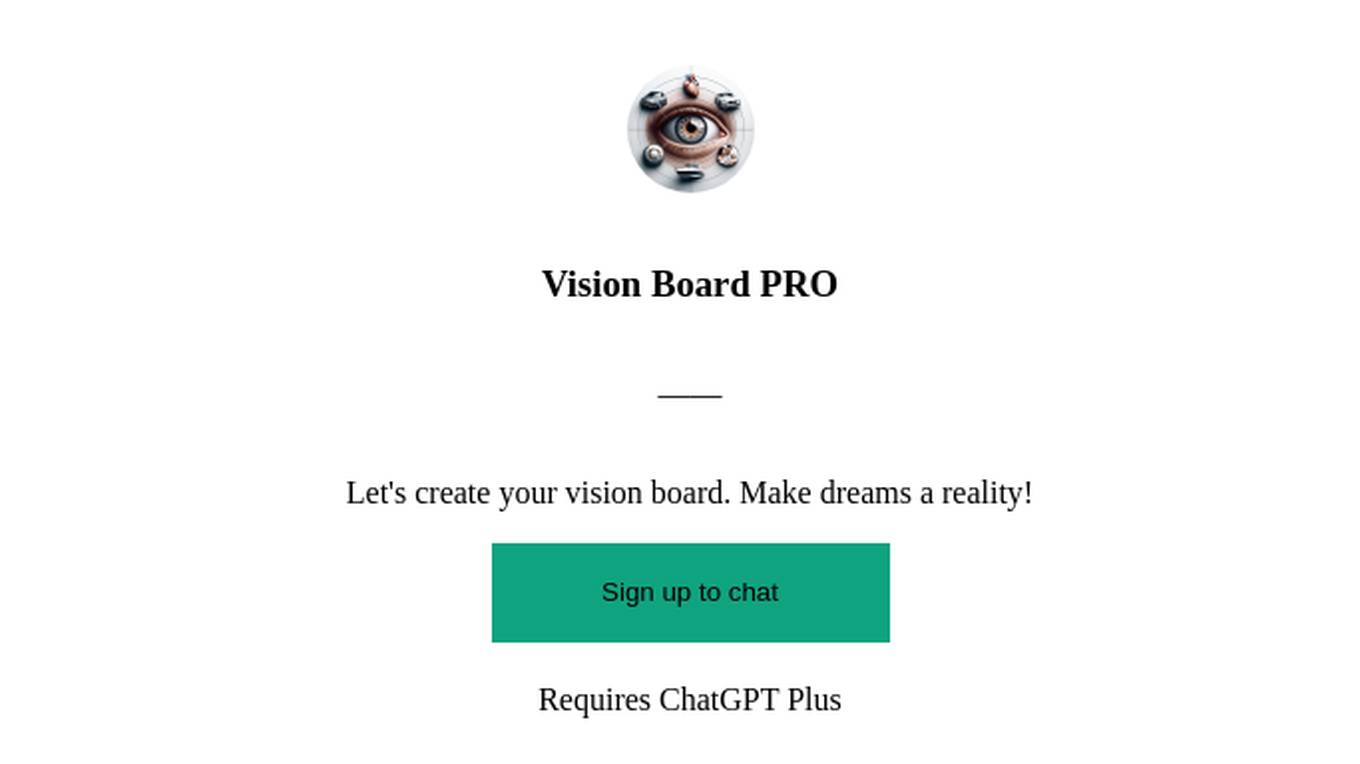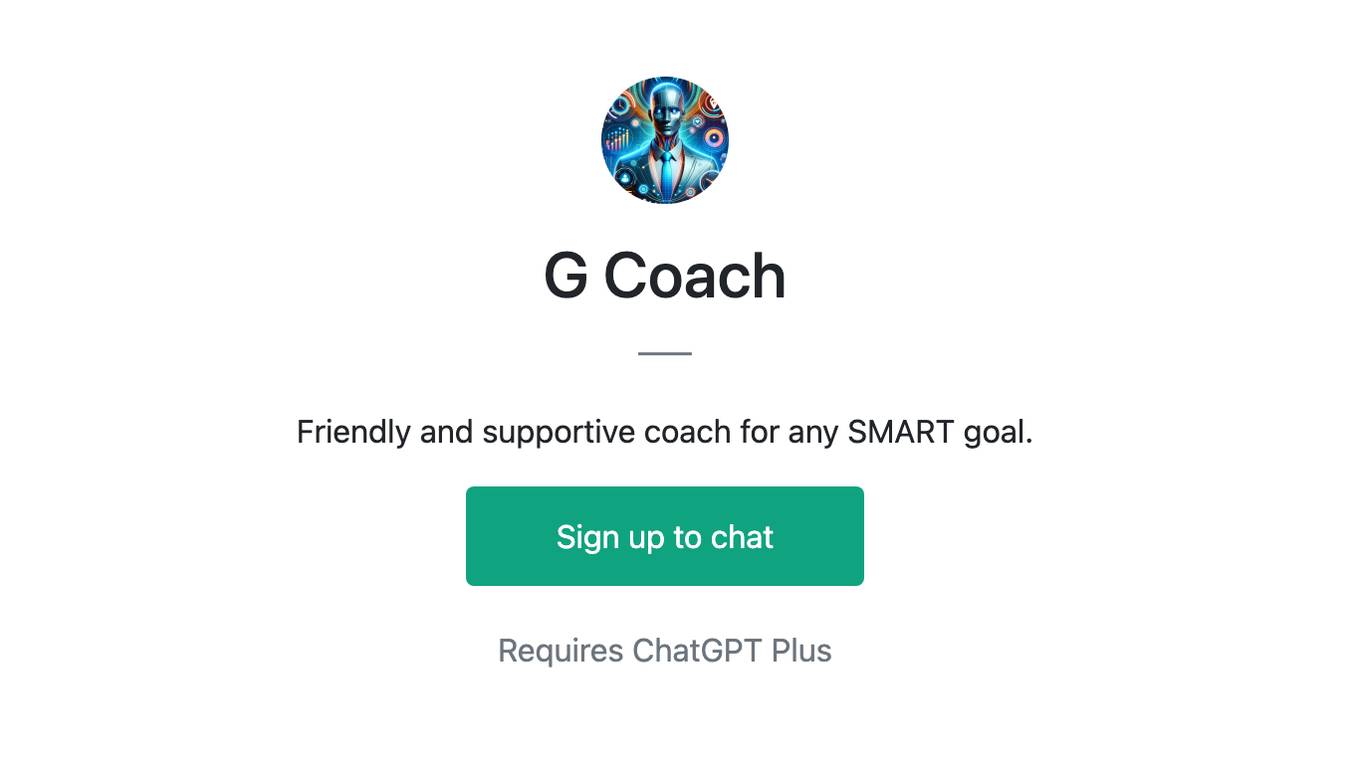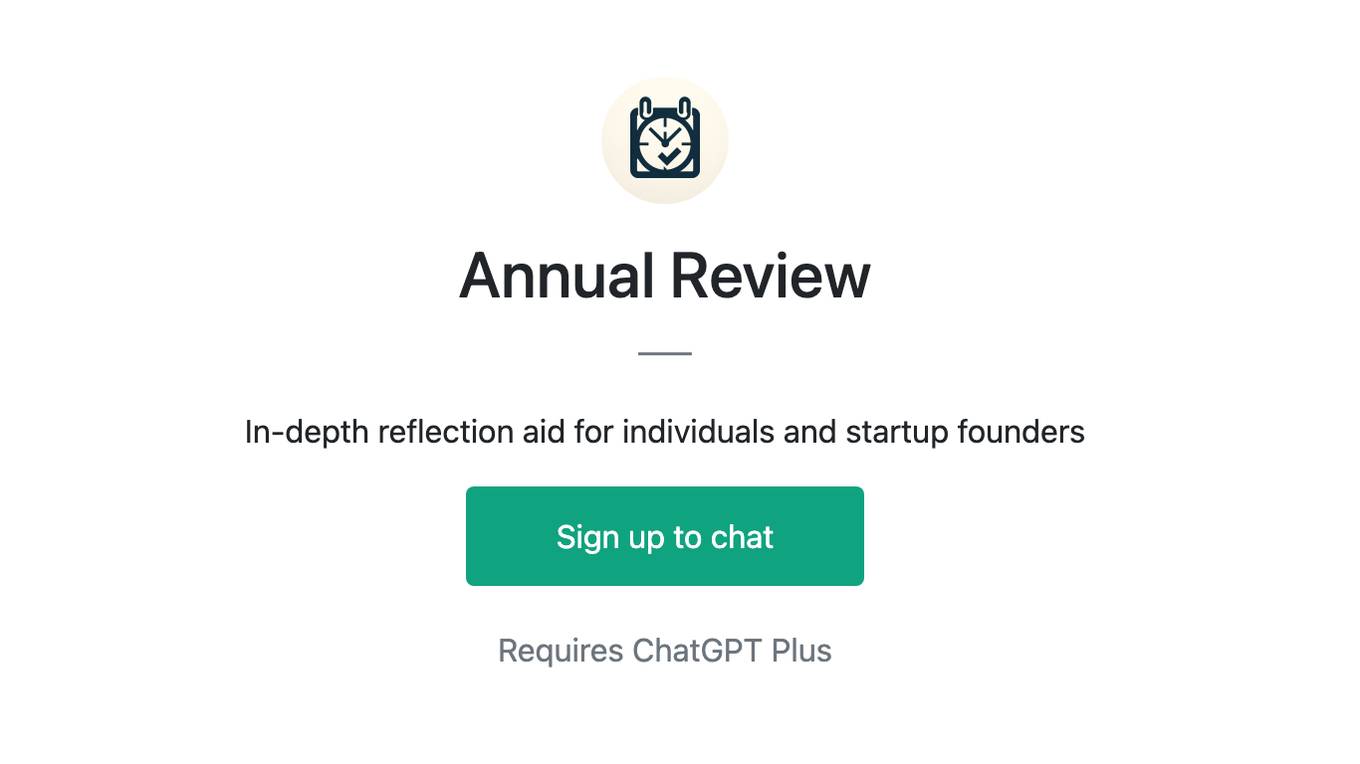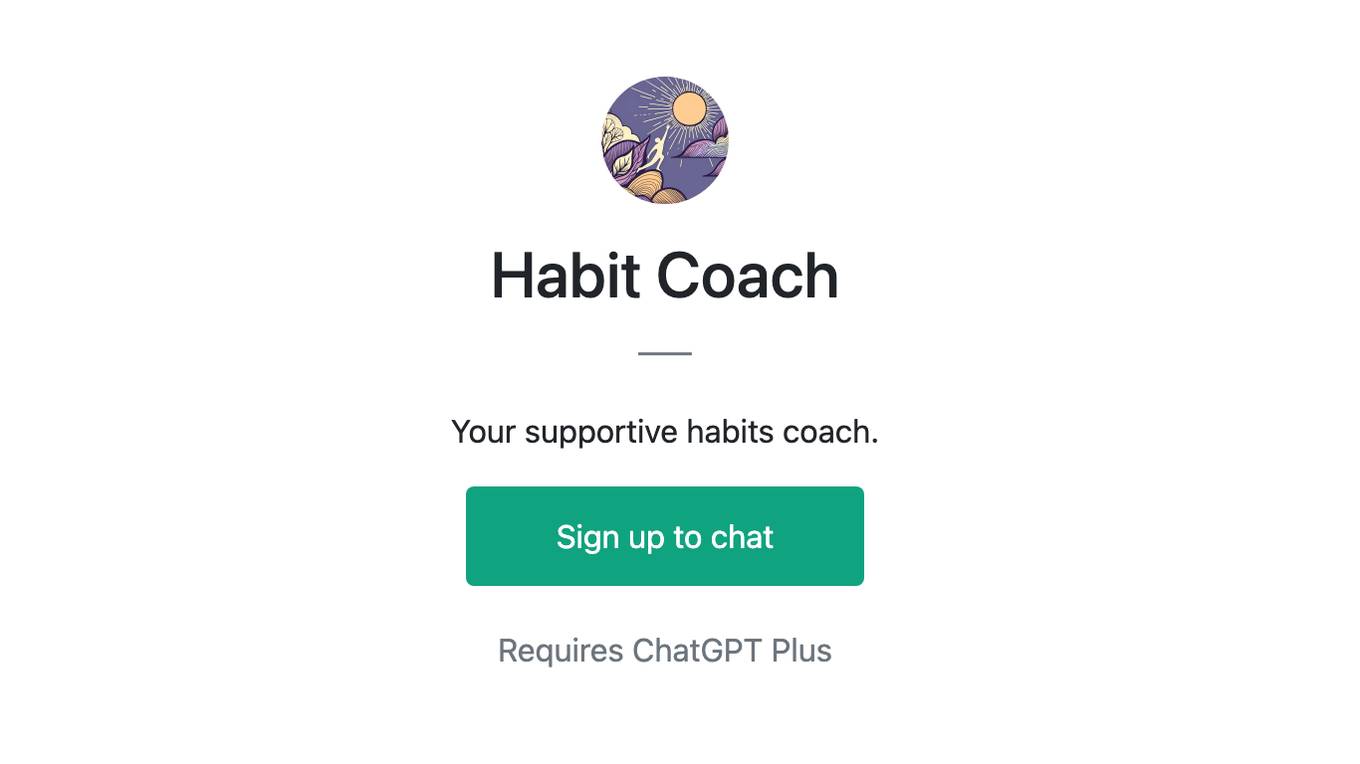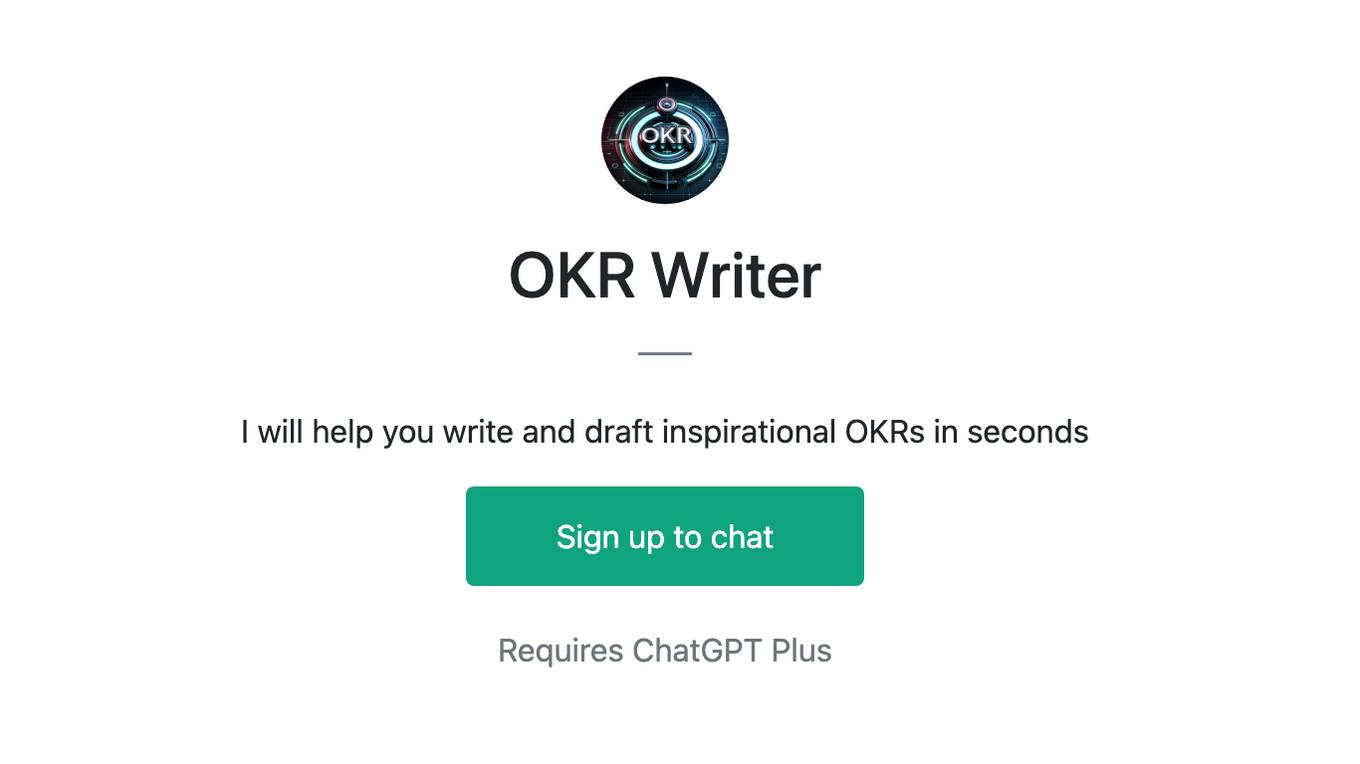Best AI tools for< Setting Goals >
20 - AI tool Sites
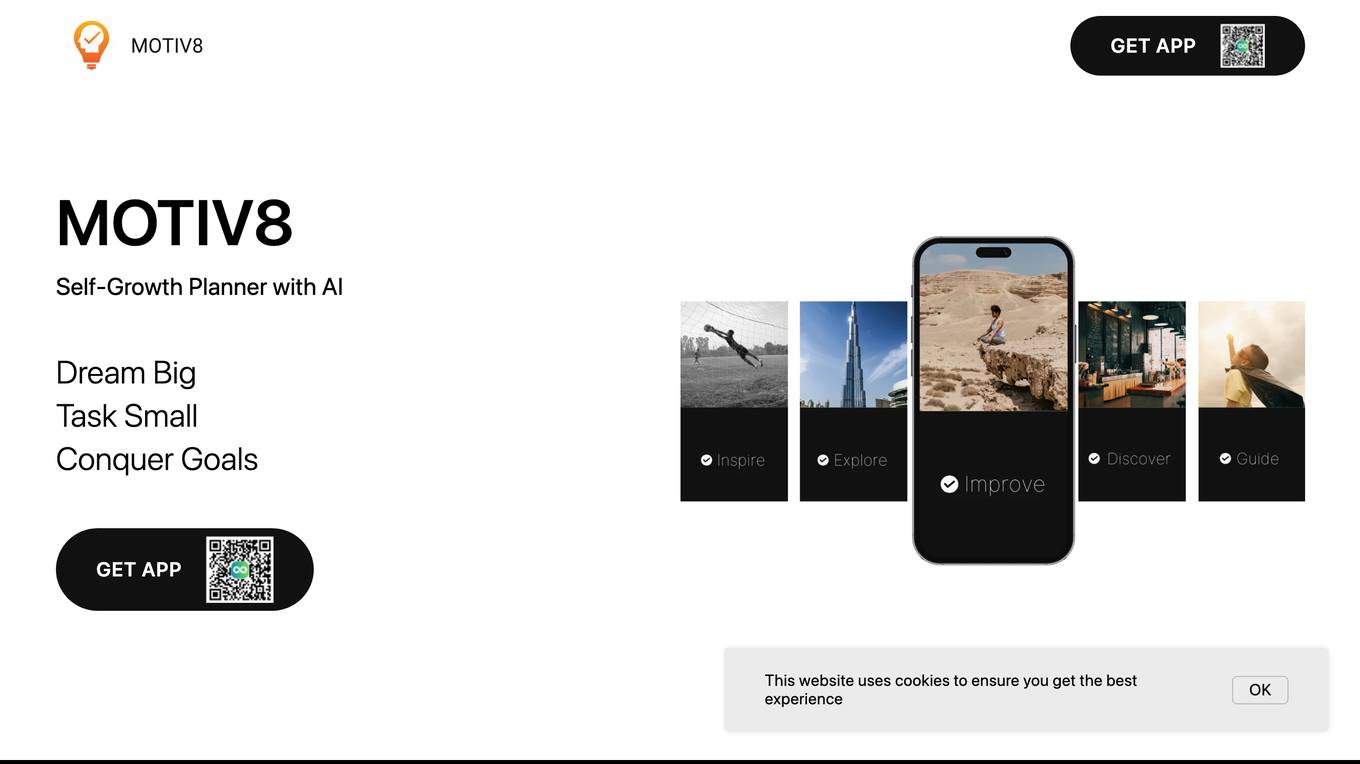
MOTIV8
MOTIV8 is an AI-powered self-growth planner application designed to help individuals explore ideas, organize life, and complete tasks. It offers a comprehensive platform for setting goals, managing tasks, and staying organized, while also providing personalized guidance and recommendations for personal growth and productivity. With the help of GPT-powered AI, users can break down goals into detailed task lists, discover new ideas, and seamlessly turn ideas into actionable tasks. MOTIV8 aims to enhance users' productivity, efficiency, and overall well-being by unlocking their true potential and empowering them to thrive in all areas of life.
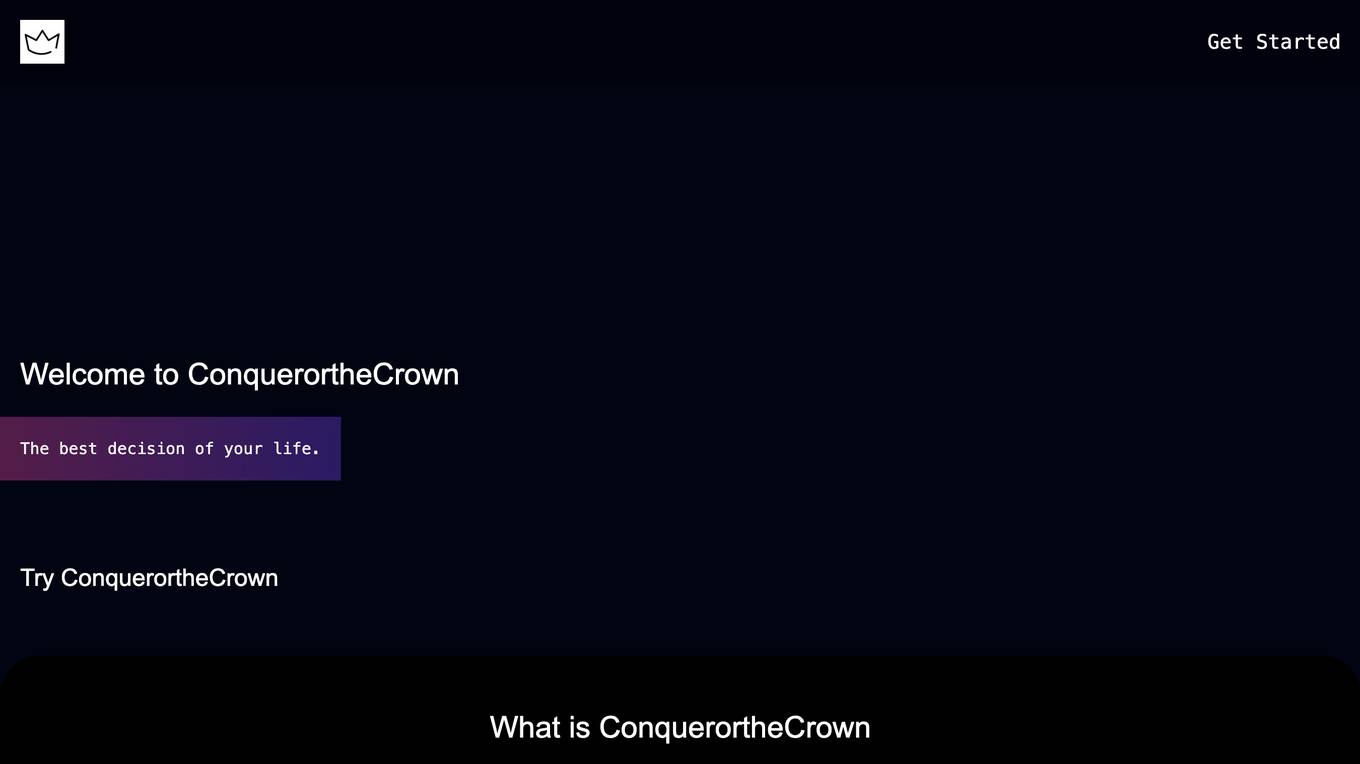
ConquerortheCrown
ConquerortheCrown is an AI-powered mentor that provides guidance and support to users. It is designed to help users achieve their goals and live a more fulfilling life. ConquerortheCrown uses a variety of AI techniques to provide personalized advice and support to users. It can help users with a variety of tasks, including setting goals, making decisions, and overcoming challenges.
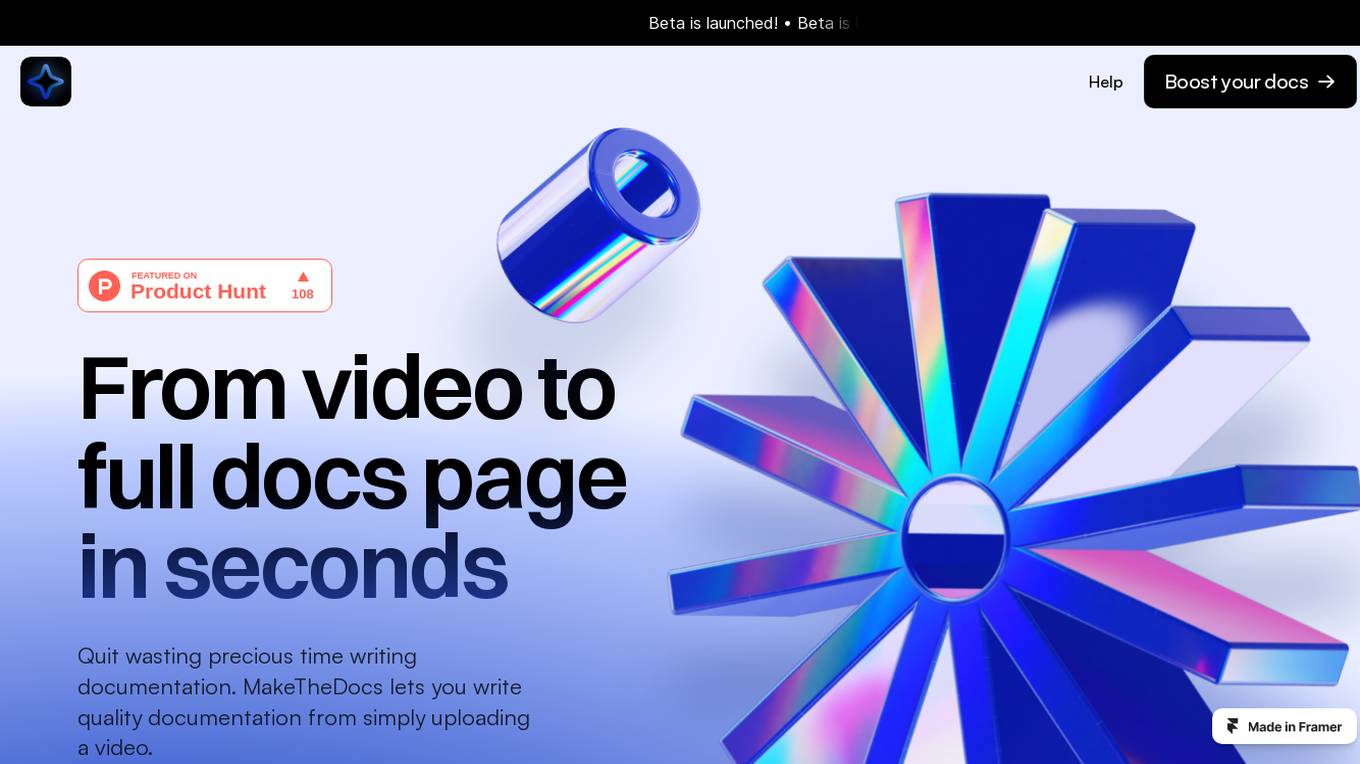
MakeTheDocs
MakeTheDocs is an AI-powered documentation tool that allows users to create quality documentation quickly by simply uploading a video. The tool leverages AI technology to analyze and generate documentation in less than a minute, saving users time and effort. MakeTheDocs offers various pricing plans with different features such as token usage, video length, export options, and support levels. Users can customize their documentation pages by adding branding and setting goals. The tool ensures data privacy by not collecting user data without consent.
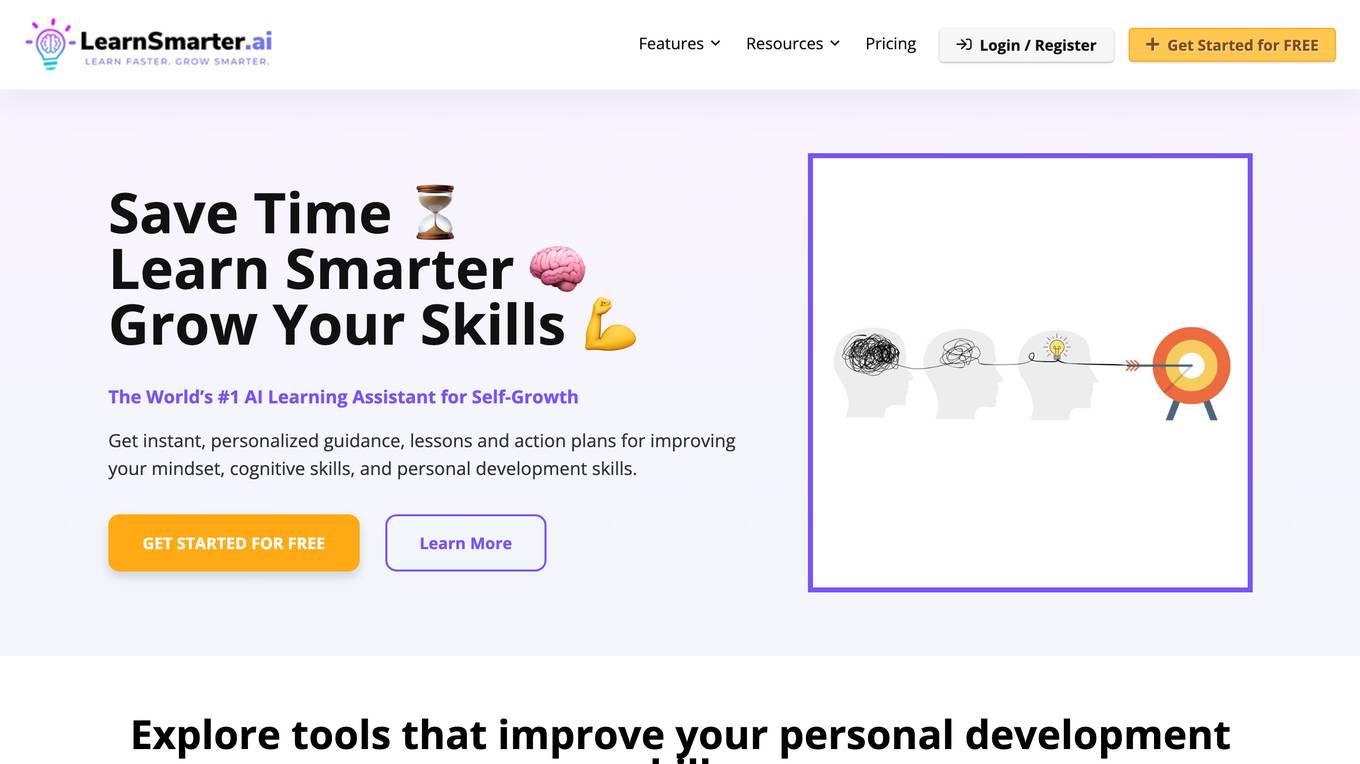
LearnSmarter.ai
LearnSmarter.ai is a comprehensive AI-powered platform designed to enhance personal development and goal achievement. It offers a wide range of tools, resources, and personalized guidance to help users improve their mindset, cognitive skills, and decision-making abilities. With LearnSmarter.ai, individuals can access AI-powered learning tools, interact with AI characters representing industry leaders and personal coaches, and enroll in fast-track courses to accelerate their growth journey. The platform emphasizes efficient learning, practical application, and personalized support to empower users in setting clear goals, making informed decisions, solving complex problems, and taking effective actions towards their desired outcomes.

Resolution Coach
Resolution Coach is the world's first AI coach designed to help individuals achieve their New Year's resolutions effectively. The application leverages artificial intelligence to provide personalized guidance and motivation to users, assisting them in setting realistic goals and creating actionable plans to reach them. With a user-friendly interface, Resolution Coach offers a seamless experience for users to track their progress, receive timely reminders, and stay accountable towards their resolutions. Whether it's fitness goals, career aspirations, or personal development objectives, Resolution Coach is a reliable companion to support users in their journey towards self-improvement.
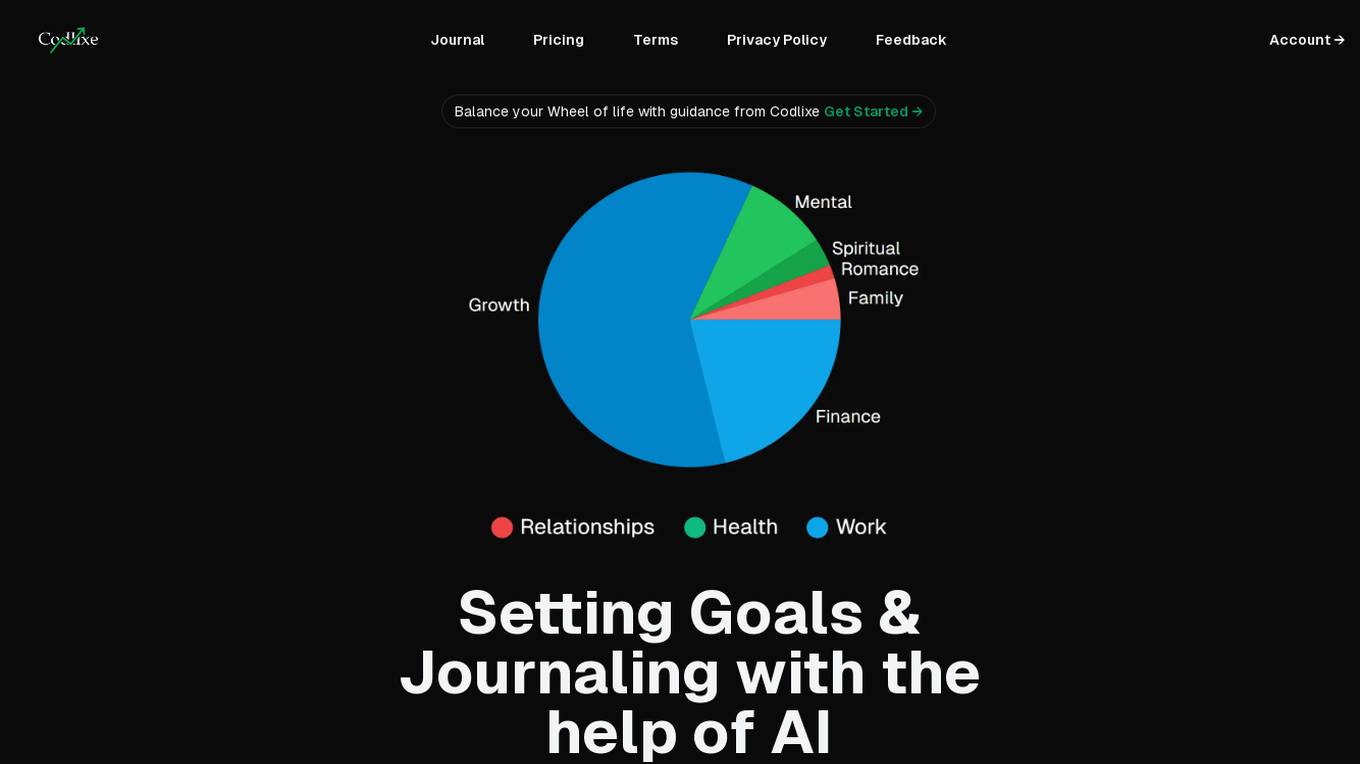
Codlixe
Codlixe is an AI-powered application designed to help users balance their life goals and journal effectively. With the assistance of AI, users can set goals that bring balance to various areas of their lives and receive journaling prompts to kickstart their writing journey. The application tracks and categorizes goals, provides suggestions for goal setting based on progress analysis, and offers journaling prompts to inspire users. Codlixe aims to be a growth companion for users, guiding them towards a more balanced and fulfilling life.
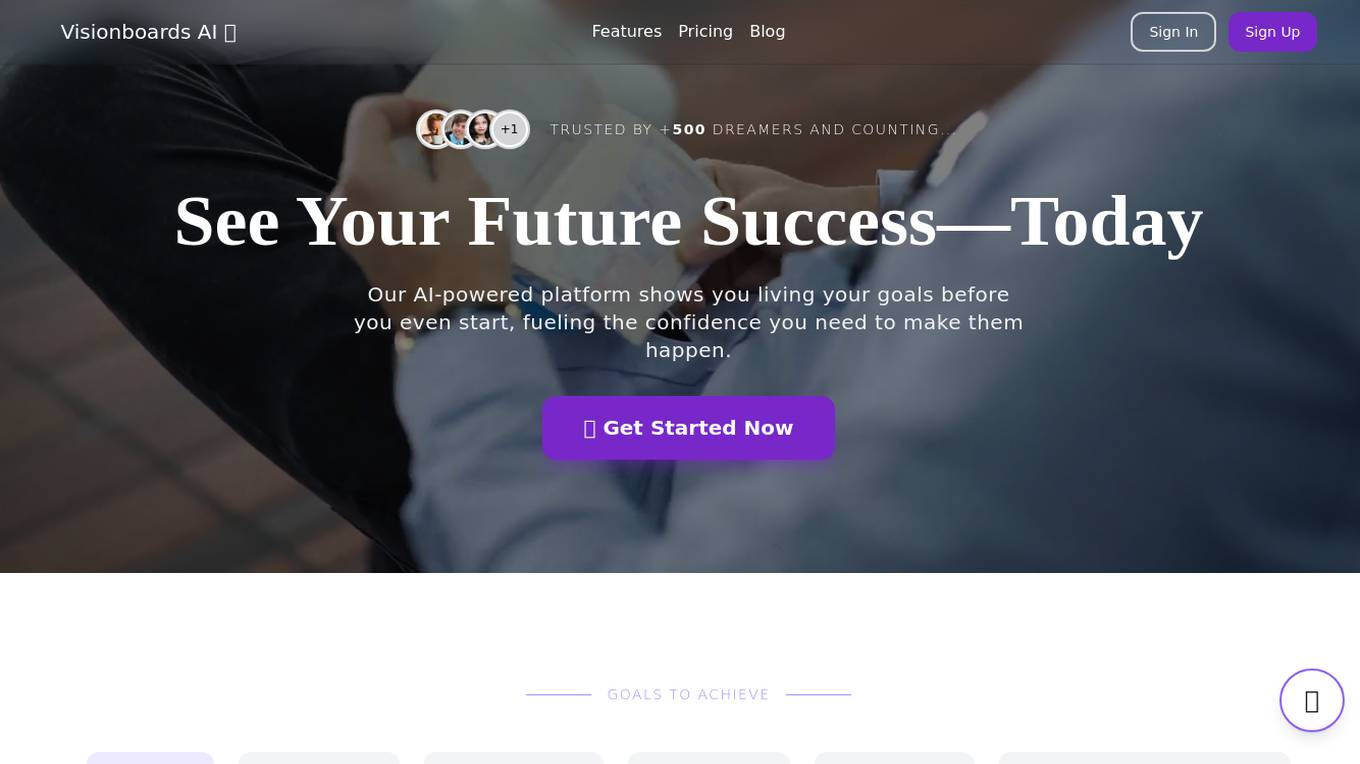
Visionboards AI
Visionboards AI is an AI-powered platform that helps users visualize and achieve their goals by creating personalized vision boards. The platform uses AI to generate inspiring images aligned with users' aspirations, fueling confidence and motivation. Users can share their goals, generate customized vision boards, and stay motivated to turn their dreams into reality. Visionboards AI offers different pricing packages with unique features and benefits, including high-resolution visuals, psychology-backed success visualization, and commercial use licenses. The platform aims to empower users to see themselves achieving their specific goals and progress through stages of their journey.
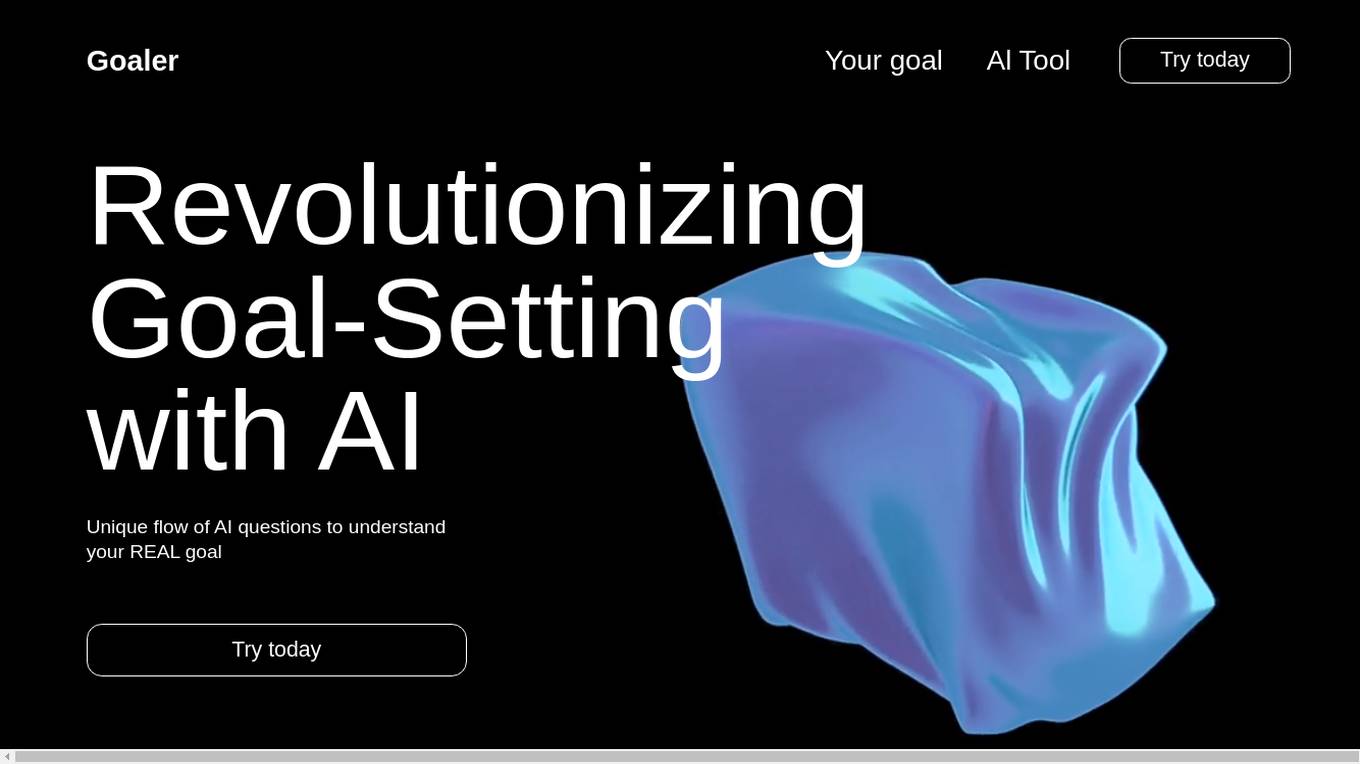
Goaler
Goaler is an AI-powered goal-setting tool that helps users define, refine, and track their goals. It uses a unique flow of AI questions to understand the user's true goals and provides personalized insights and guidance to help them achieve those goals. Goaler is ideal for anyone looking to make meaningful changes or define their path forward, whether it's for personal growth, career advancement, or a specific project.
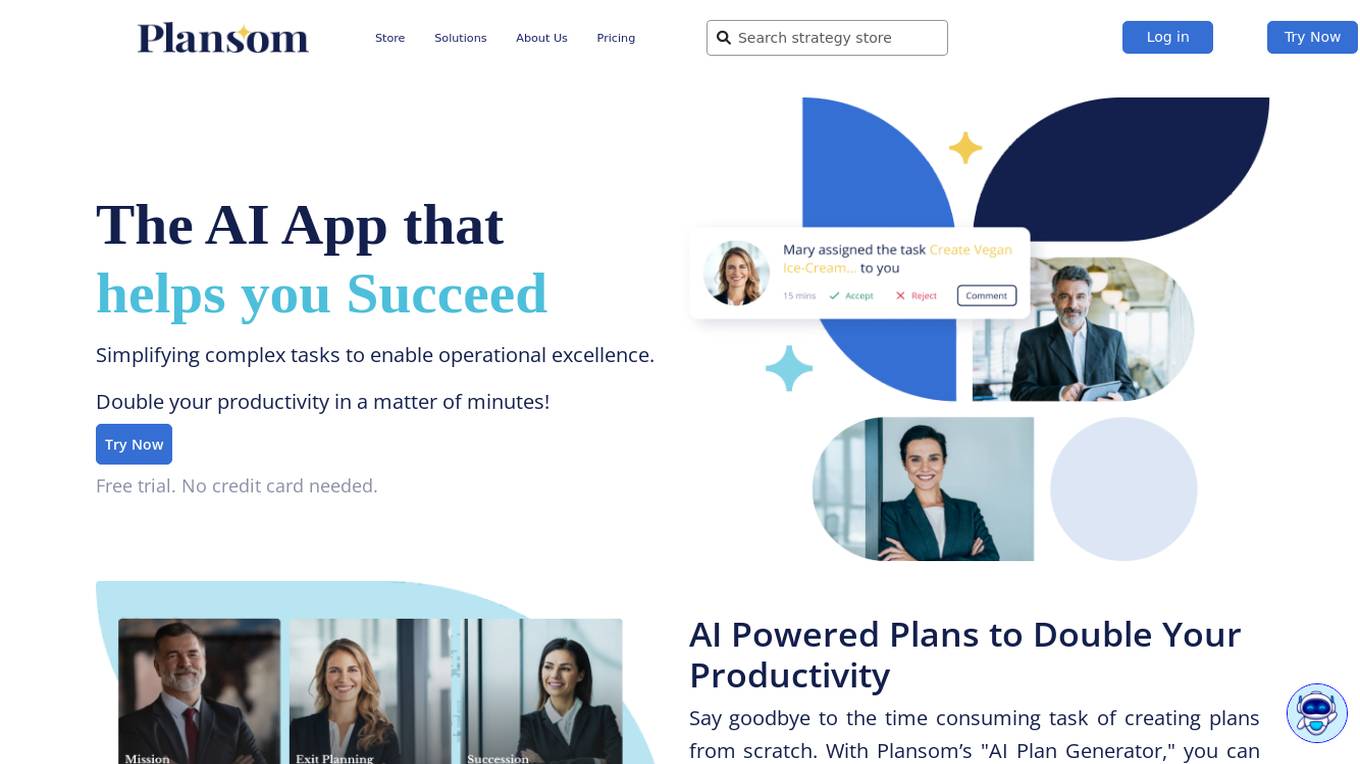
Plansom
Plansom is an AI project management application designed to help users double their productivity by simplifying complex tasks and enabling operational excellence. With AI-powered plans and smart algorithms, Plansom assists in creating detailed business plans, prioritizing tasks, achieving goals quickly, and facilitating seamless collaboration. Users can track team achievements in real-time, roll out custom templates, and access ready-to-use strategy templates for various industries.
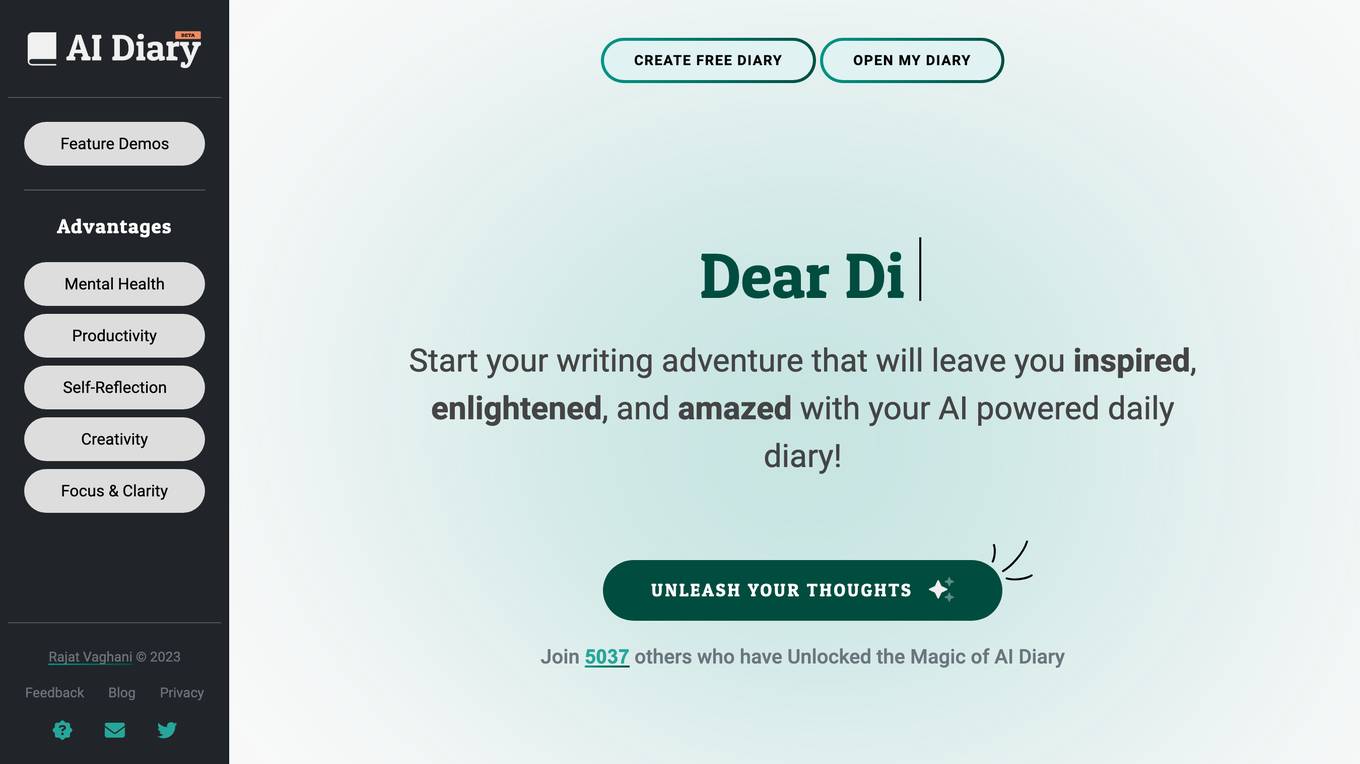
AI Diary
AI Diary is a web-based platform that combines the traditional concept of a personal diary with the power of artificial intelligence (AI). It offers a unique and interactive experience where users can engage in conversations with an AI model, express their thoughts and emotions, and receive personalized insights and guidance. AI Diary is designed to enhance self-reflection, promote emotional well-being, and support personal growth. With its user-friendly interface and advanced AI capabilities, AI Diary empowers users to explore their inner selves, set and achieve goals, and unleash their creativity.
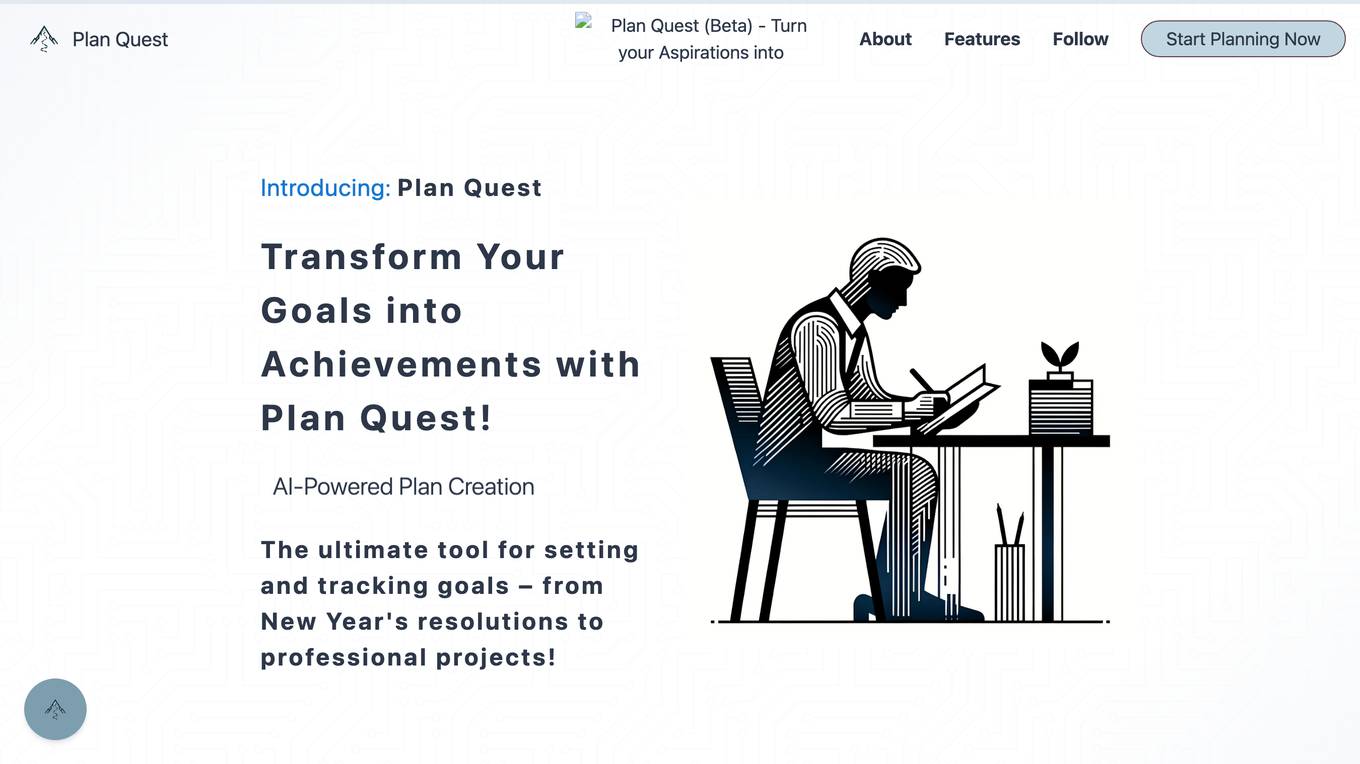
Plan Quest
Plan Quest is an AI-powered planning tool that helps you set and track goals, create visual timelines, and collaborate with others. It offers a variety of features to help you stay organized and motivated, including AI-powered plan creation, timeline visualization, OKR tracking, a Notion-like editor, and a canvas for reflection. Plan Quest is designed to help you achieve your goals, whether they're personal or professional.
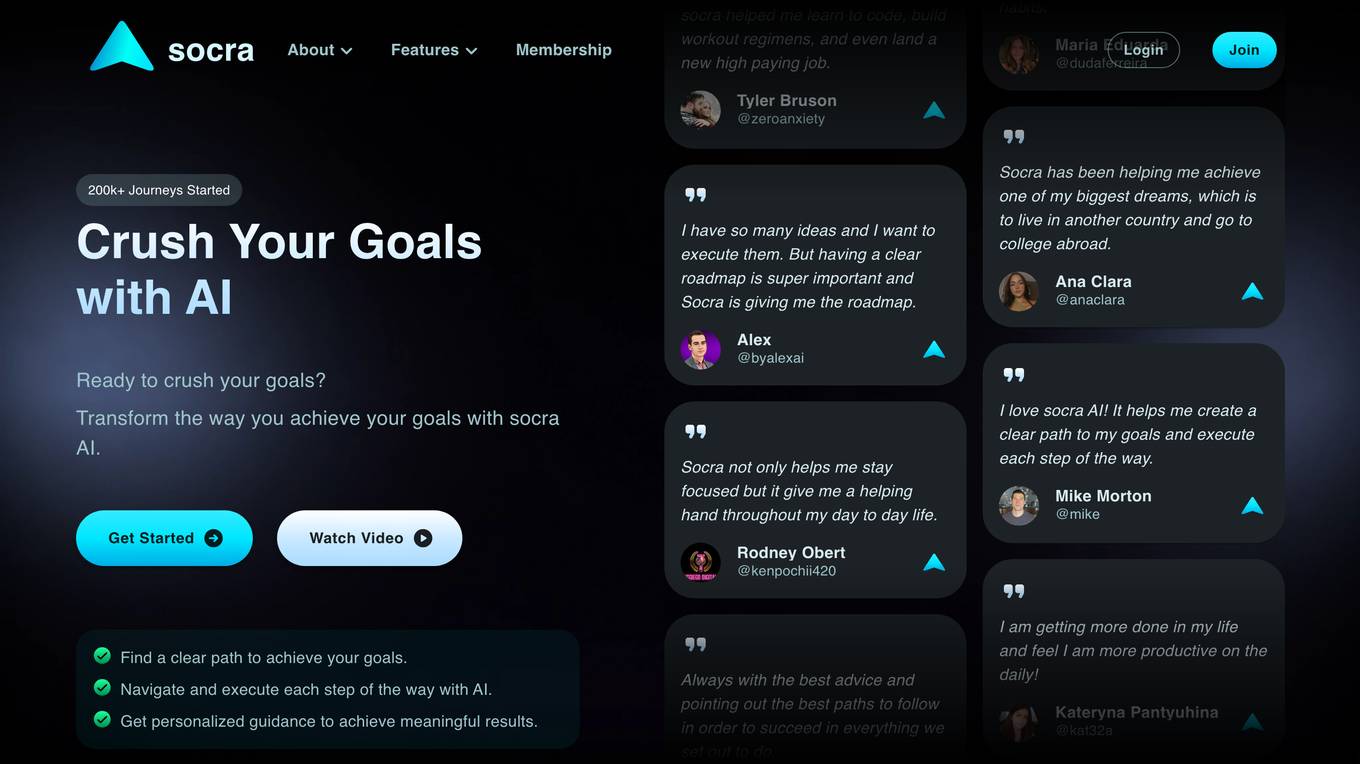
Socra
Socra is an AI-powered platform designed to assist individuals in achieving their goals. It provides personalized guidance, helps users plan and track their progress, and offers tools to build habits and break bad ones. Socra's AI capabilities include natural language processing, machine learning, and computer vision, enabling it to understand users' goals, provide tailored recommendations, and generate insights to help them stay on track.

Life Note
Life Note is an AI-powered platform designed to help users discover and work on their life purpose by journaling alongside over 1,000 great minds across various professions. It offers personalized mentorship, guidance, and inspiration from renowned figures to assist users in navigating life's challenges and opportunities. The platform combines spirituality, creativity, and AI technology to create a unique space for self-reflection, goal-setting, and personal growth.
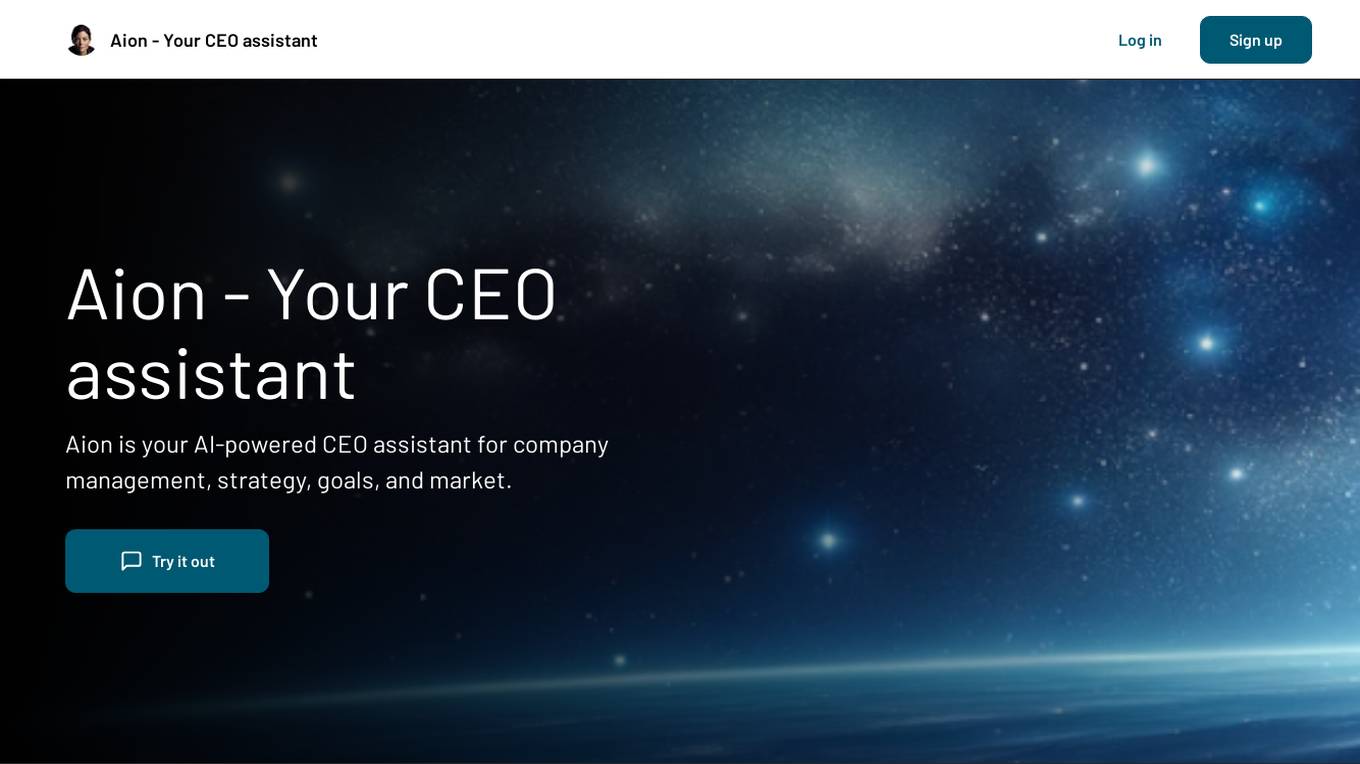
Aion
Aion is an AI-powered virtual assistant designed to support CEOs in managing their daily tasks efficiently. The application leverages advanced AI algorithms to provide personalized assistance to CEOs, helping them streamline their workflow and stay organized. Aion offers a range of features such as scheduling meetings, managing emails, setting reminders, generating reports, and conducting research. With its intuitive interface and smart capabilities, Aion aims to enhance productivity and decision-making for busy executives.
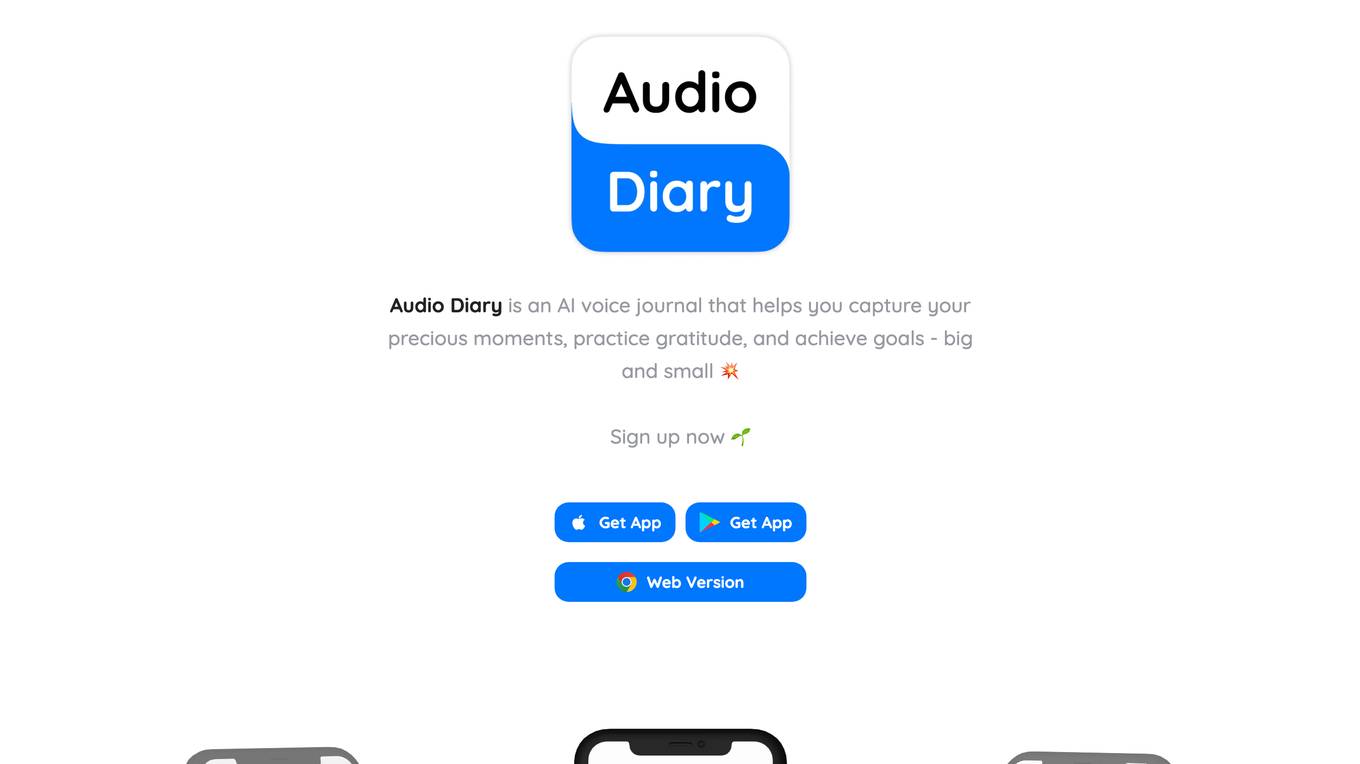
AudioDiary
AudioDiary is a super-smart AI voice journal application that effortlessly transforms your fleeting thoughts into lasting insights. It allows users to record their thoughts, transcribes them, analyzes the content, and provides personalized goals and suggestions based on the user's entries. The app is available on iOS, Android, MacOS, and Web App Store, with high ratings and positive reviews from users. AudioDiary offers a unique and interactive way for users to journal using voice input, making it easier and more engaging for individuals to reflect on their day and set goals.
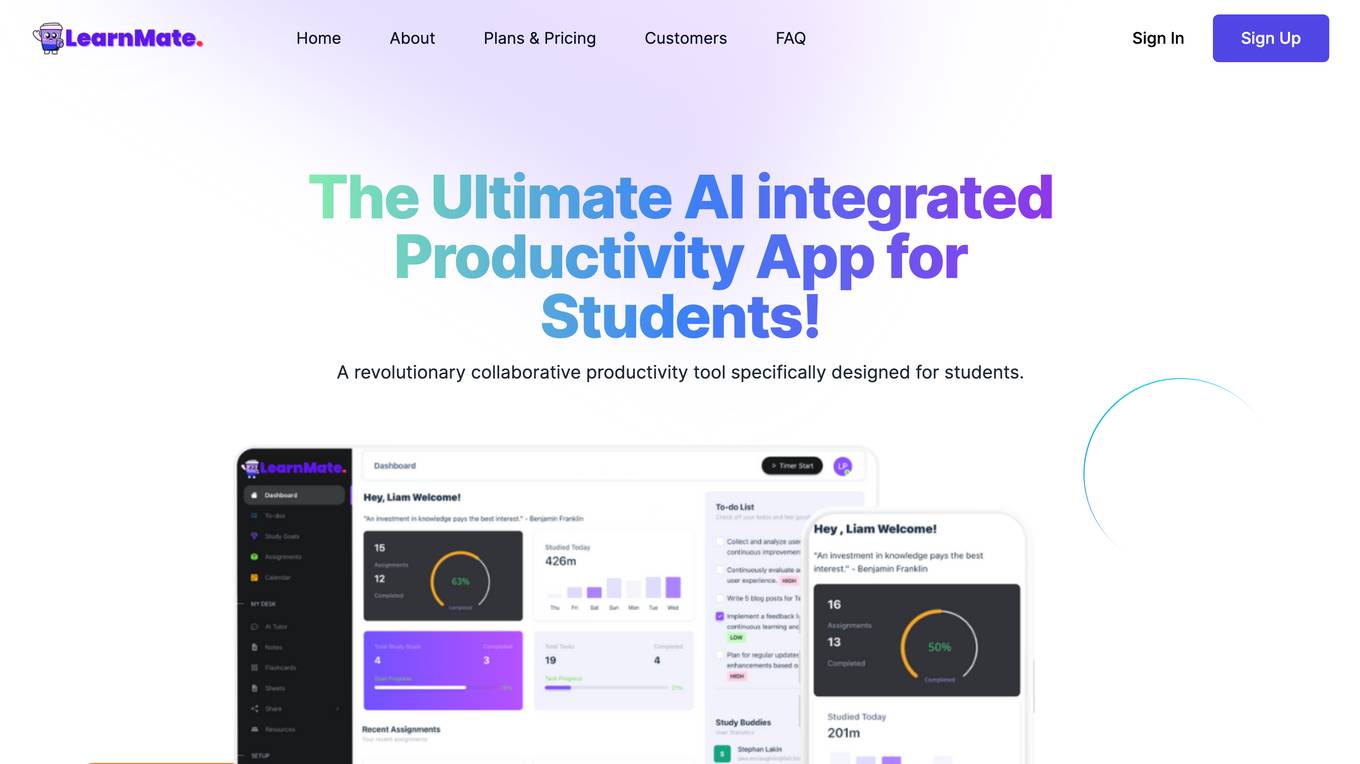
LearnMate
LearnMate is a revolutionary AI-integrated productivity app designed for students. It offers collaborative tools for study goal setting, assignment and task management, note-taking, and more. The app utilizes cutting-edge AI technology to enhance the learning experience and productivity of students. LearnMate is accessible on various devices, allowing seamless progress tracking and data synchronization across PCs, tablets, and mobile devices. With features like AI tutor assistance, assignment management, task lists, study notes creation, and more, LearnMate aims to revolutionize the way students study and excel in their academic endeavors.
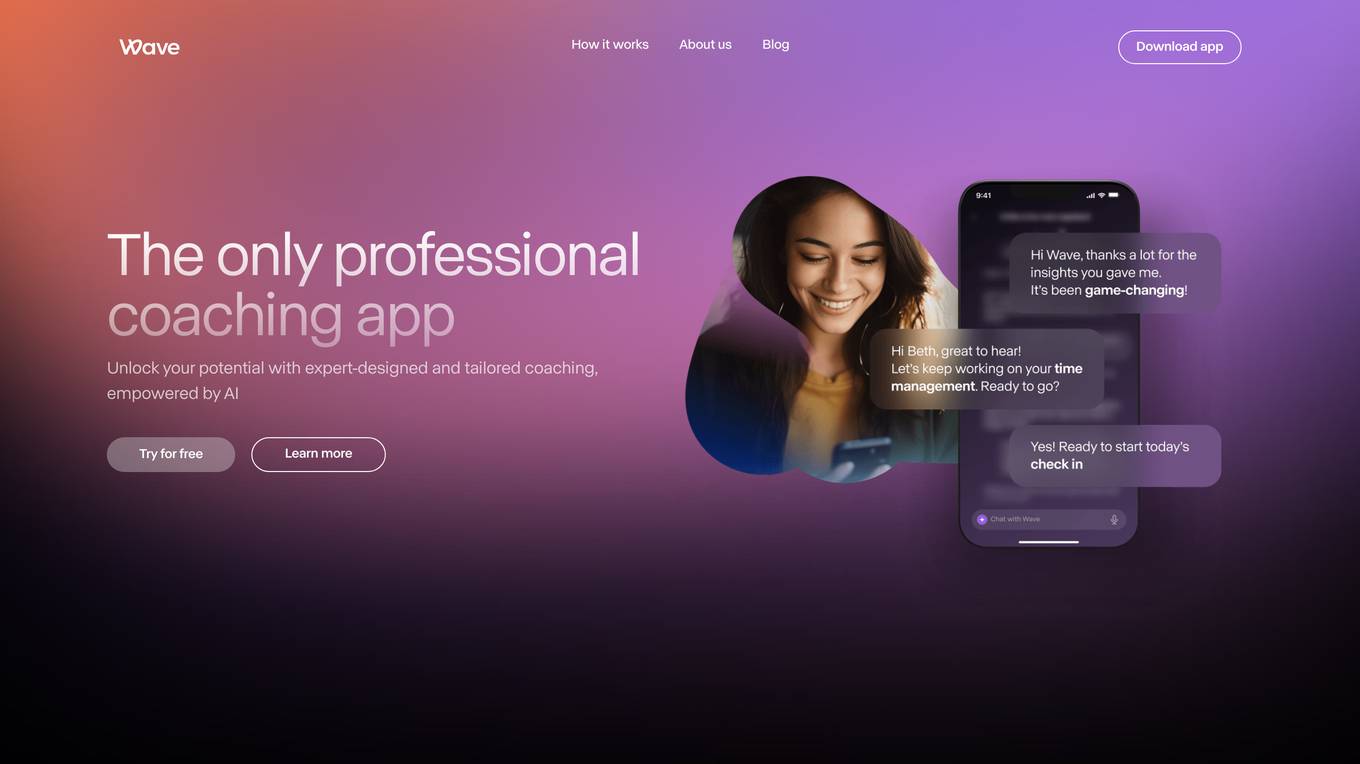
Wave AI
Wave AI is a professional coaching app that provides expert-designed and tailored coaching, empowered by AI. It offers a range of coaching programs to help users overcome challenges at work, improve their leadership and management skills, and achieve their personal and professional goals. Wave AI's coaching is asynchronous, meaning users can access it on their own time and schedule. The app also provides users with progress tracking, goal setting, and learning preferences to help them get the most out of their coaching experience.

QTR
QTR is a quarterly planner and second brain application designed to help users achieve their goals efficiently by implementing a backward planning system. It allows users to set big goals, plan their weeks, and time-block daily tasks. The application combines various features such as goal setting, task management, note-taking, journaling, and bookmarking into a seamless system for enhanced clarity, focus, and progress. QTR is trusted by busy professionals, entrepreneurs, and solo founders to improve productivity and reduce stress by providing a structured approach to task management and goal achievement.
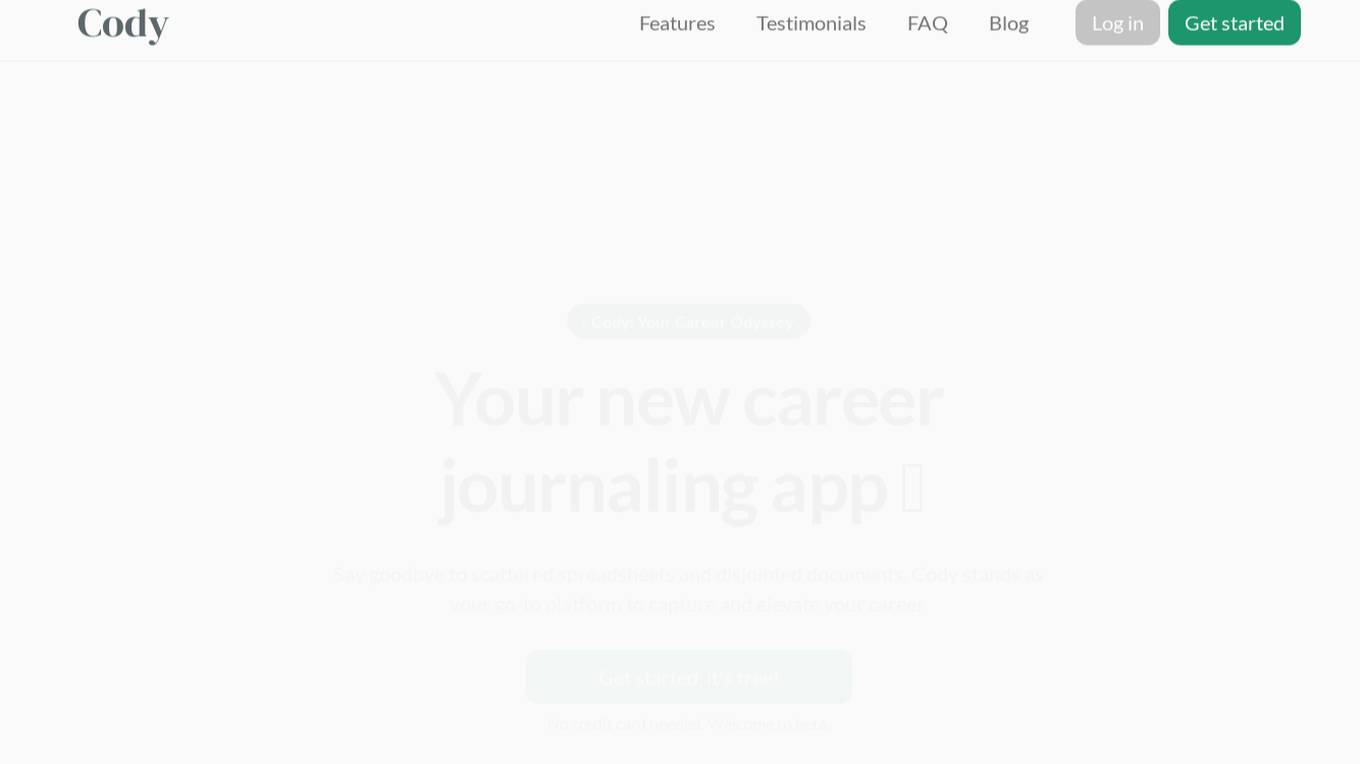
Cody
Cody is a career journaling app that helps users capture and elevate their careers. It offers features such as effortless career tracking, goal setting, and AI-powered insights. Cody is designed to help users become better leaders and professionals by providing them with a platform to reflect on their achievements, strengths, and areas for improvement.
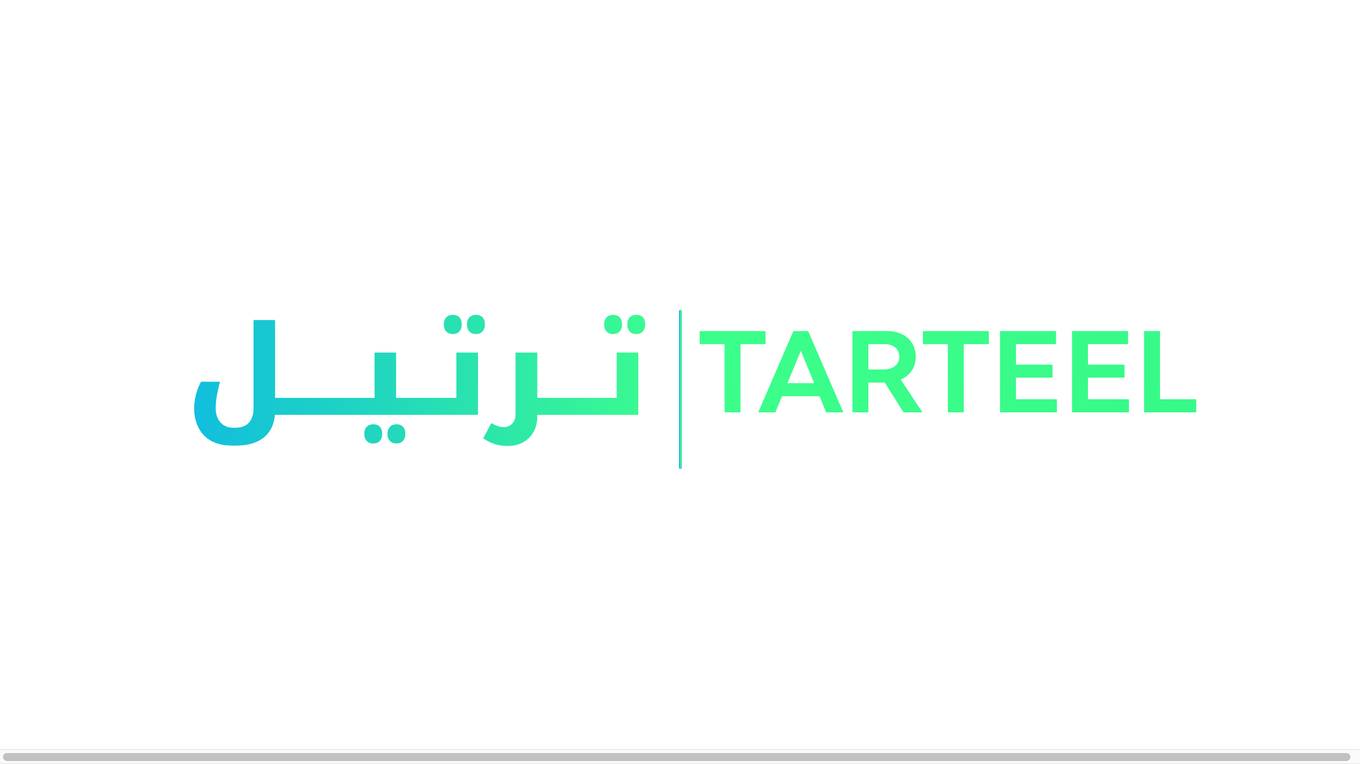
Tarteel
Tarteel is an AI-powered Quran memorization application that offers a premium experience for users. It provides features such as mistake detection, personalized memorization planning, goal setting, and more. Users can track their progress and enhance their Quran memorization journey with Tarteel's intuitive tools. The application aims to help individuals improve their recitation skills and deepen their understanding of the Quran.
0 - Open Source AI Tools
20 - OpenAI Gpts
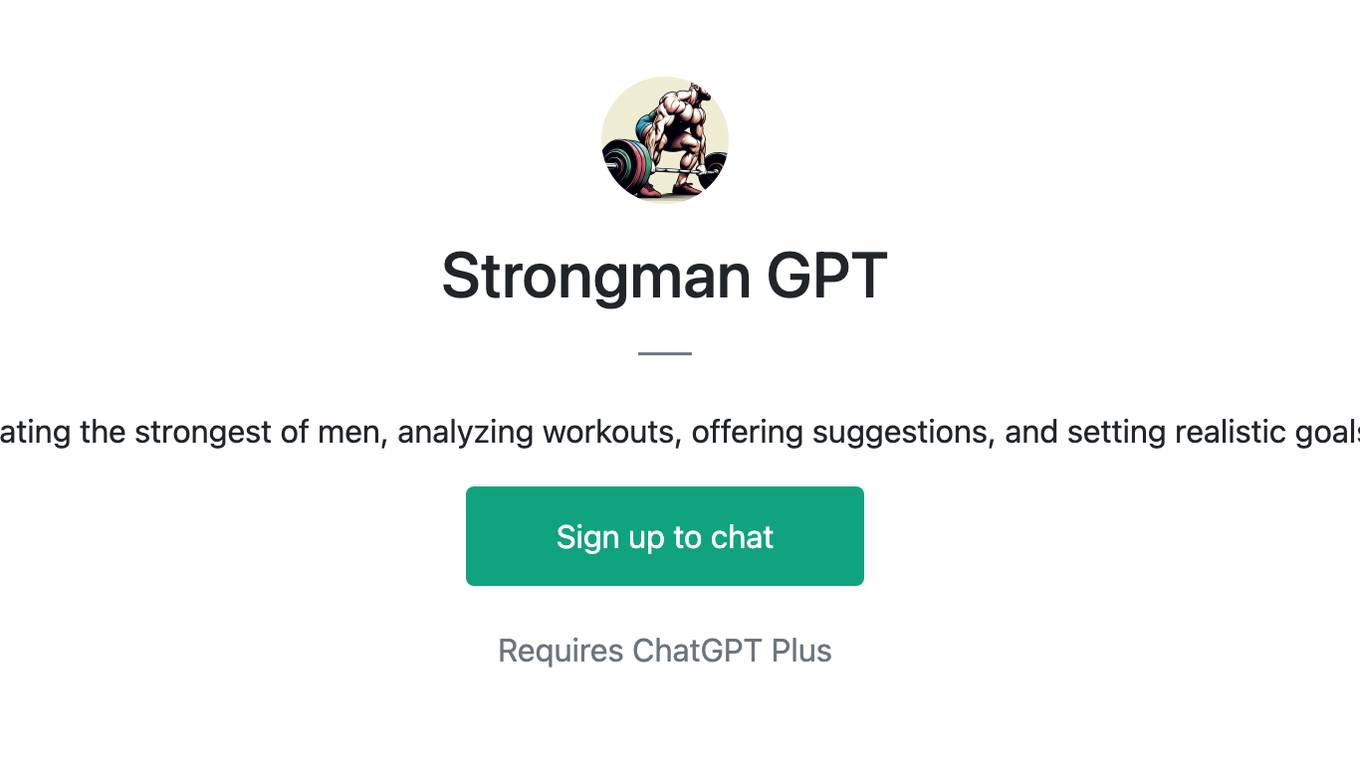
Strongman GPT
Creating the strongest of men, analyzing workouts, offering suggestions, and setting realistic goals!
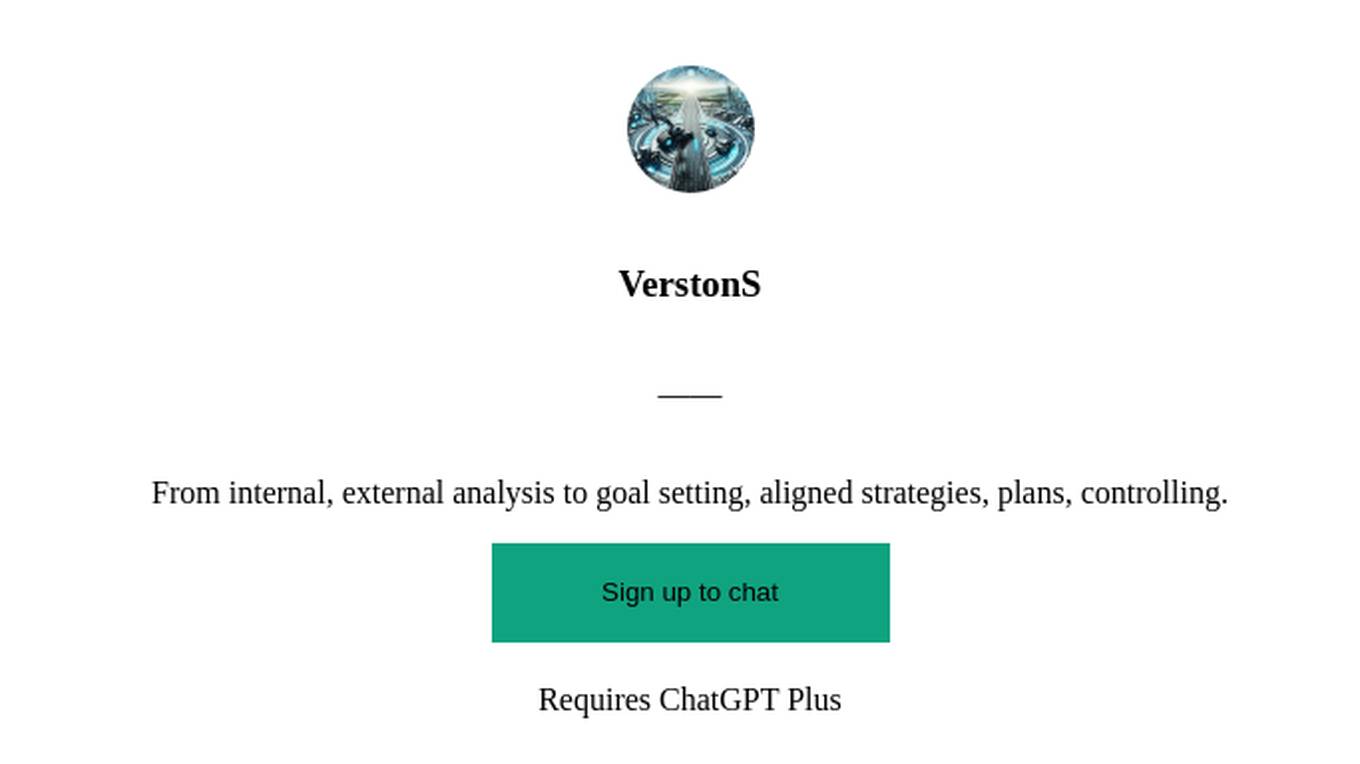
VerstonS
From internal, external analysis to goal setting, aligned strategies, plans, controlling.
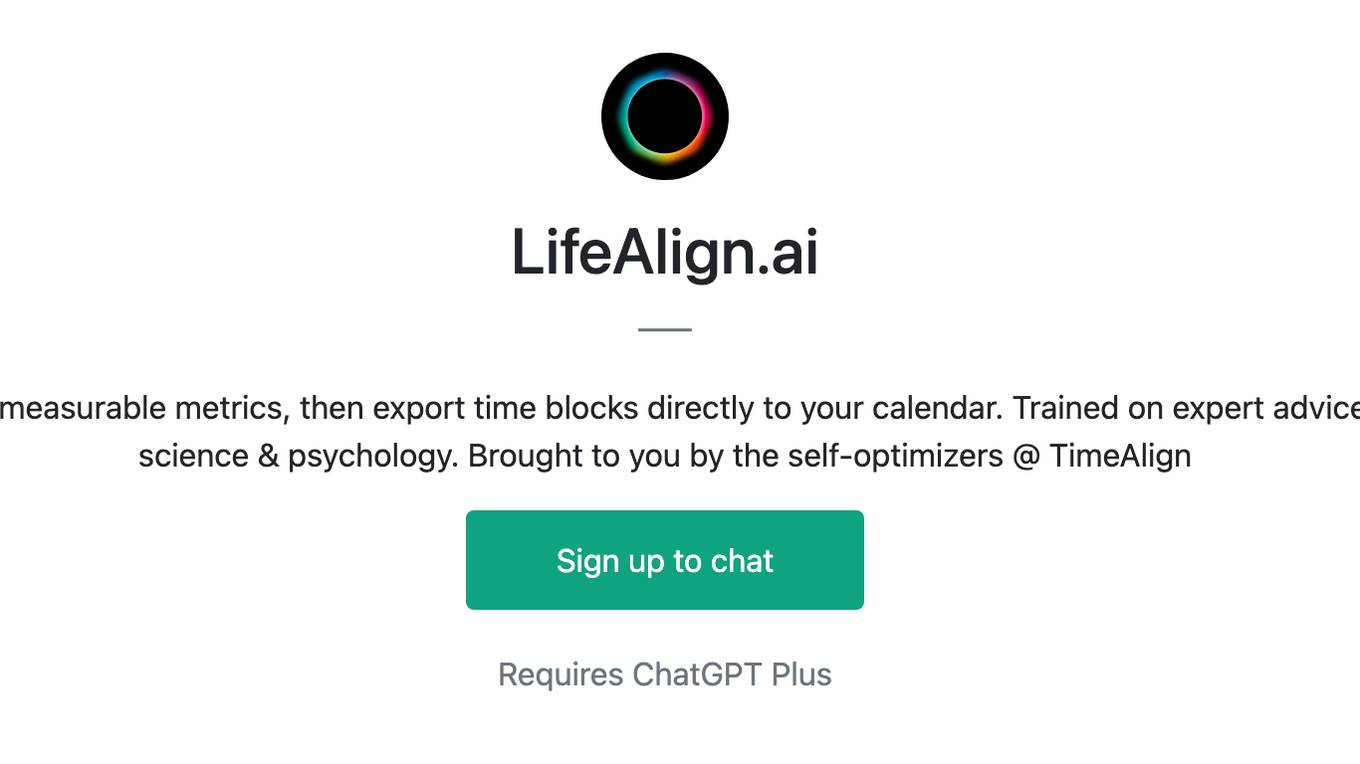
LifeAlign.ai
Clarify your goals into actionable plans with measurable metrics, then export time blocks directly to your calendar. Trained on expert advice, timeless best practices, and the latest in science & psychology. Brought to you by the self-optimizers @ TimeAlign
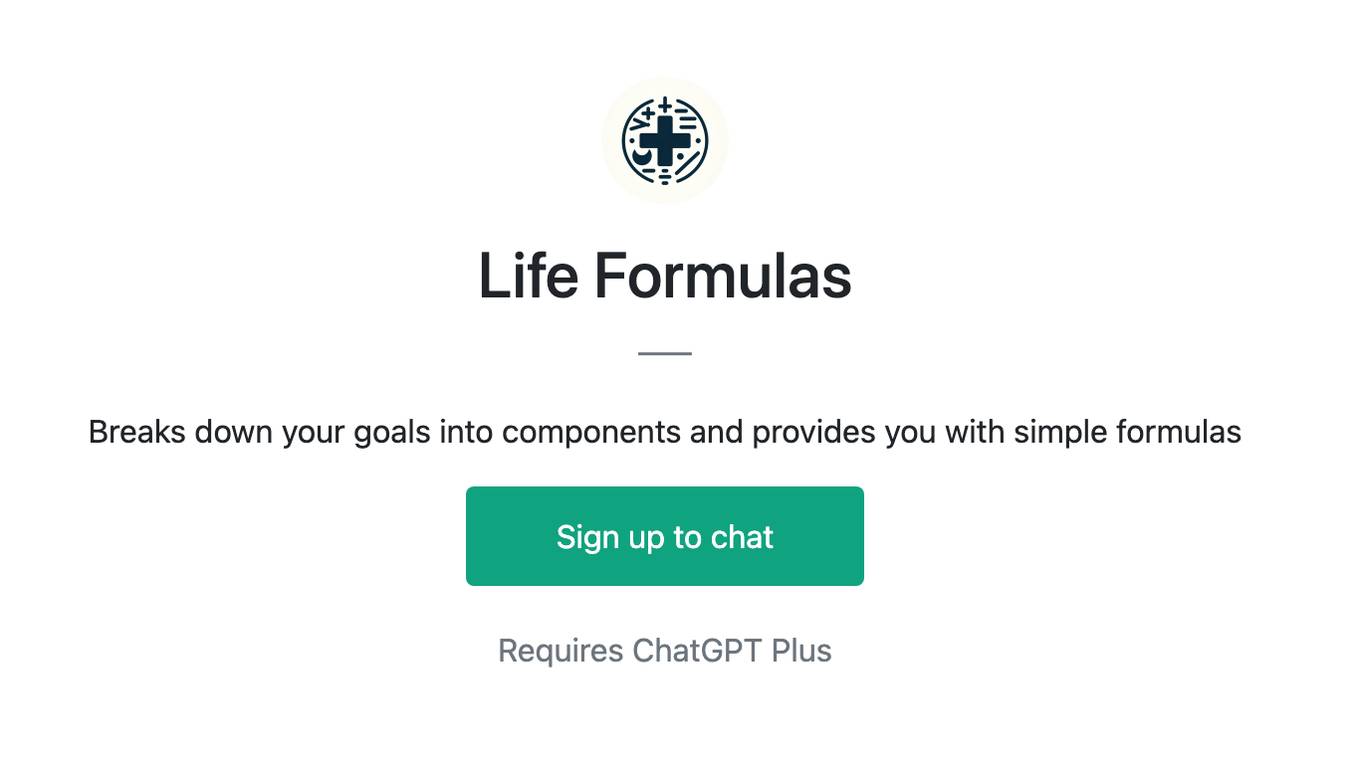
Life Formulas
Breaks down your goals into components and provides you with simple formulas
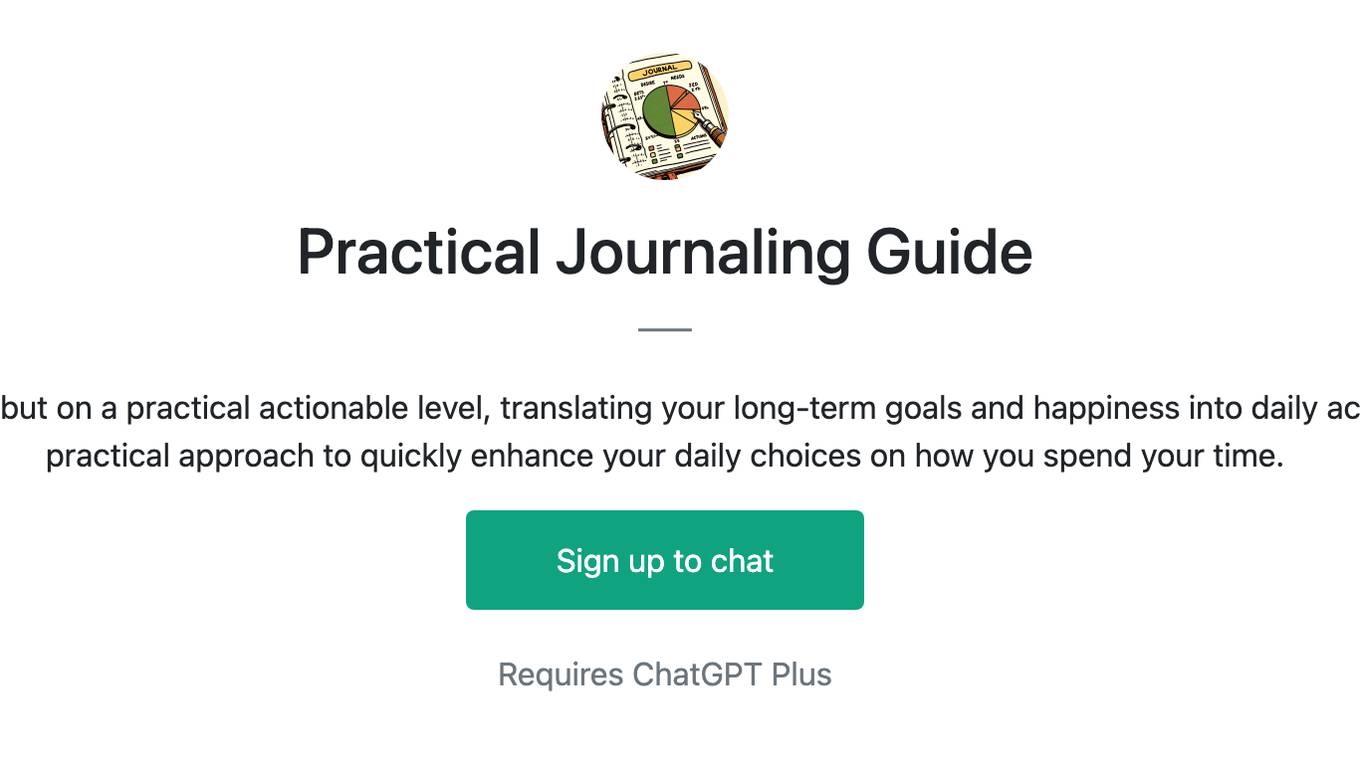
Practical Journaling Guide
Reflective journaling and time management, but on a practical actionable level, translating your long-term goals and happiness into daily actionable changes. No theoretical stuff, just practical approach to quickly enhance your daily choices on how you spend your time.
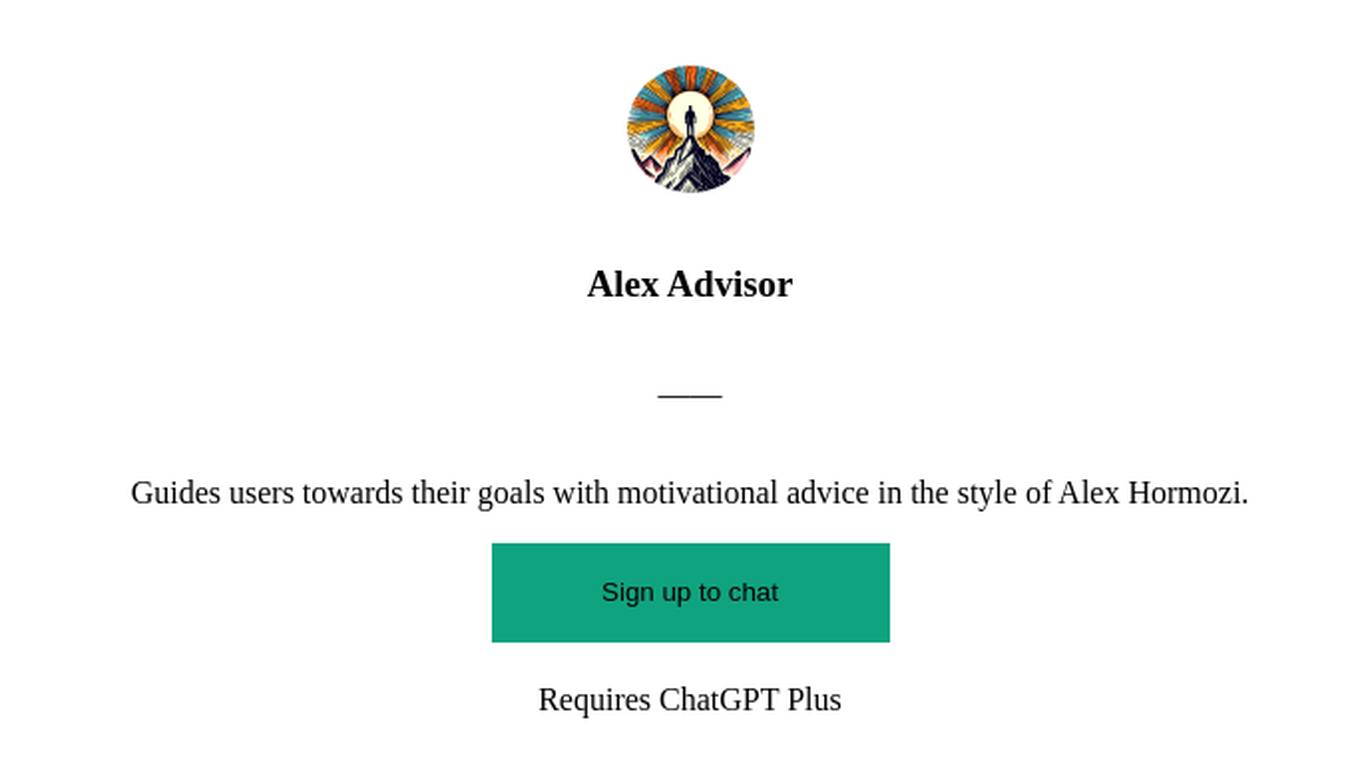
Alex Advisor
Guides users towards their goals with motivational advice in the style of Alex Hormozi.
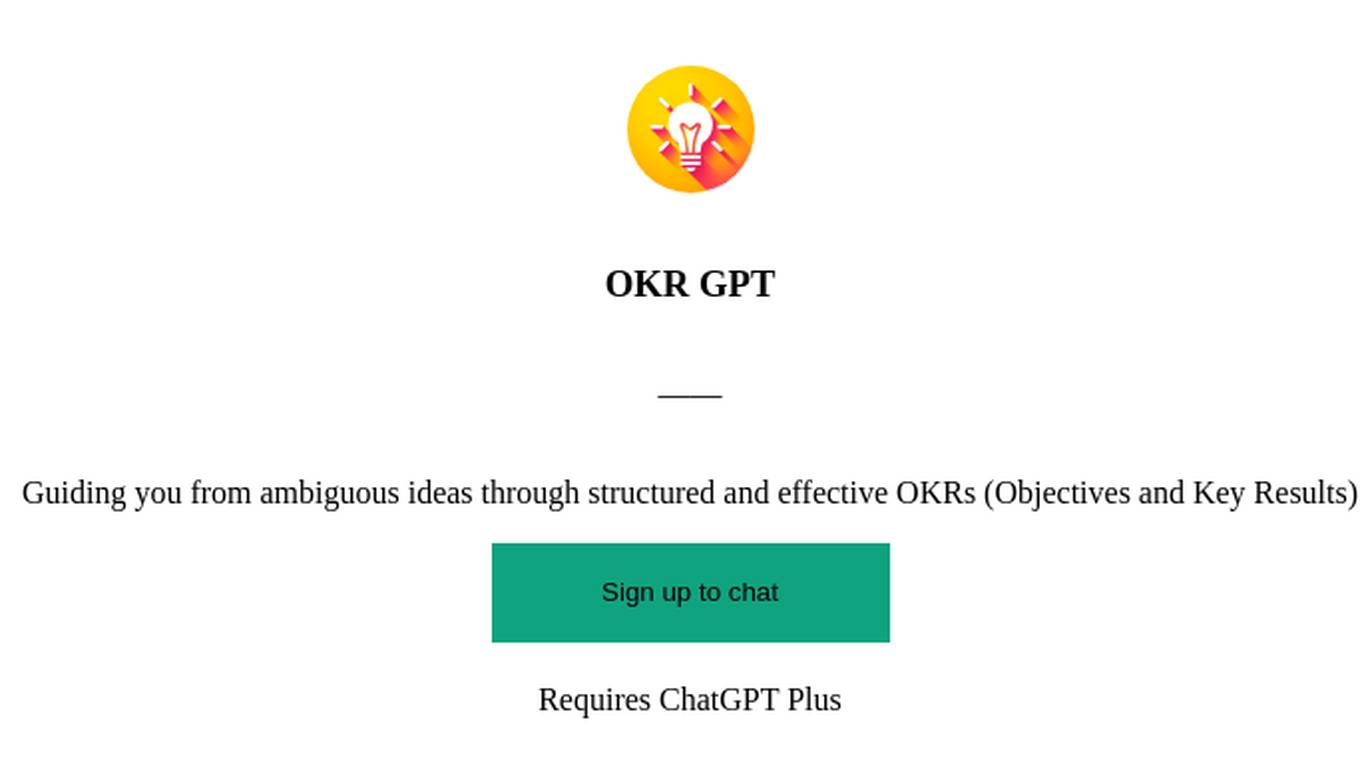
OKR GPT
Guiding you from ambiguous ideas through structured and effective OKRs (Objectives and Key Results)
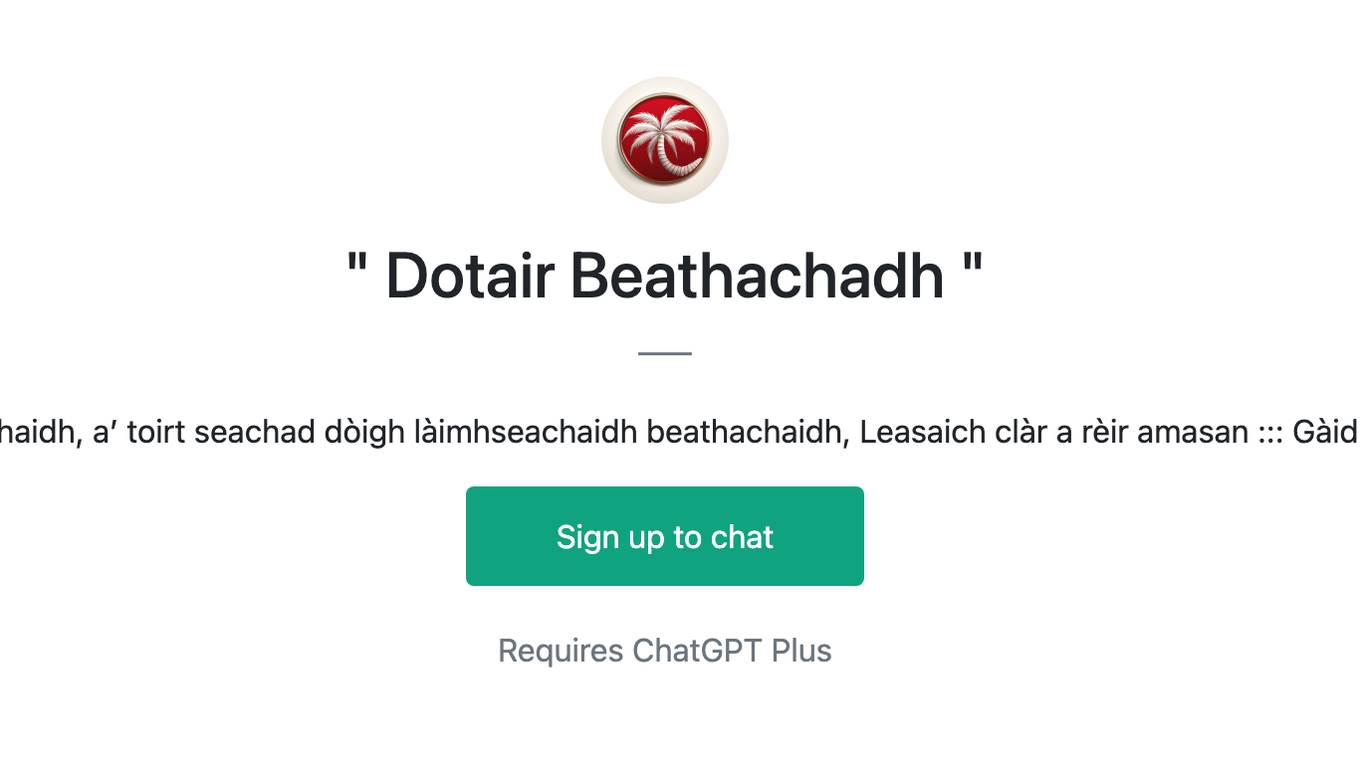
" Dotair Beathachadh "
Neach-beathachaidh, a’ toirt seachad dòigh làimhseachaidh beathachaidh, Leasaich clàr a rèir amasan ::: Gàidhlig na h-Alba
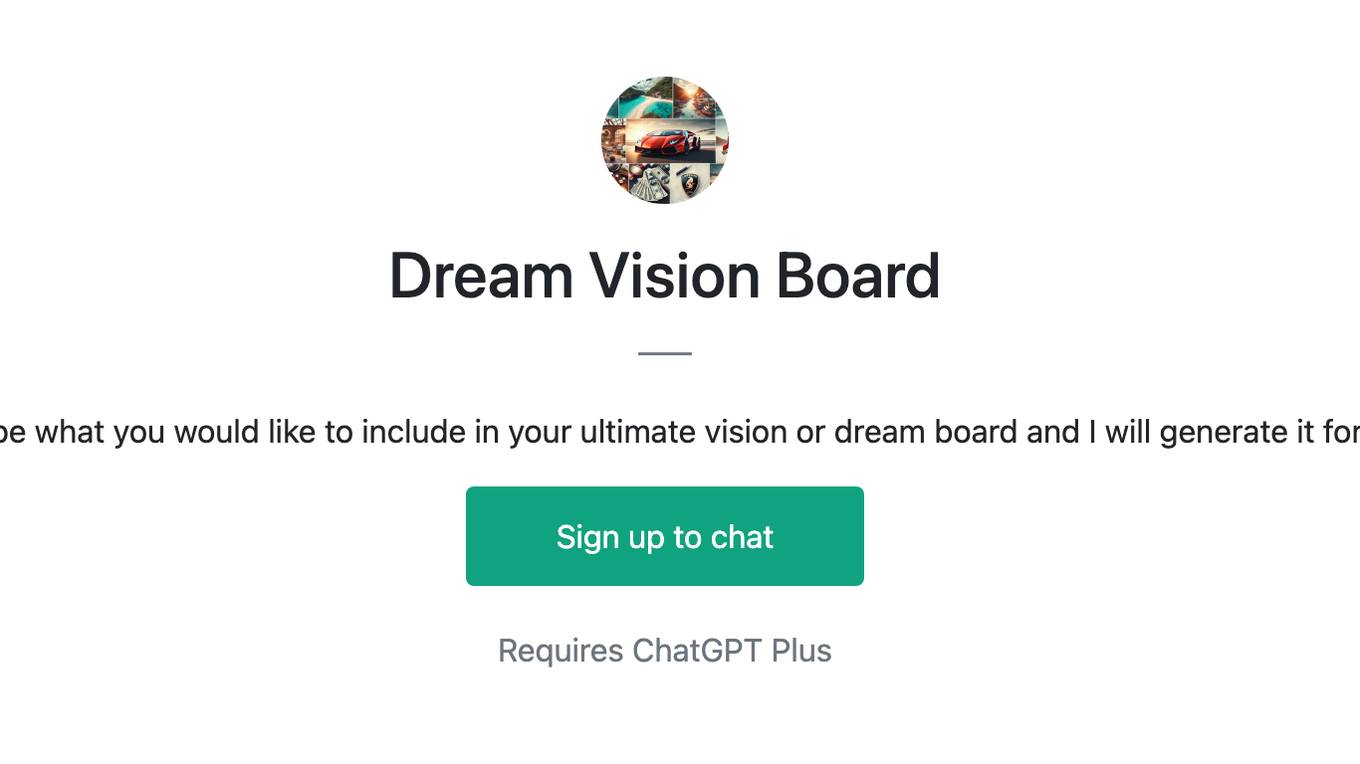
Dream Vision Board
Describe what you would like to include in your ultimate vision or dream board and I will generate it for you.
Productivity
A productivity guru offering practical strategies and tools for enhanced efficiency.
